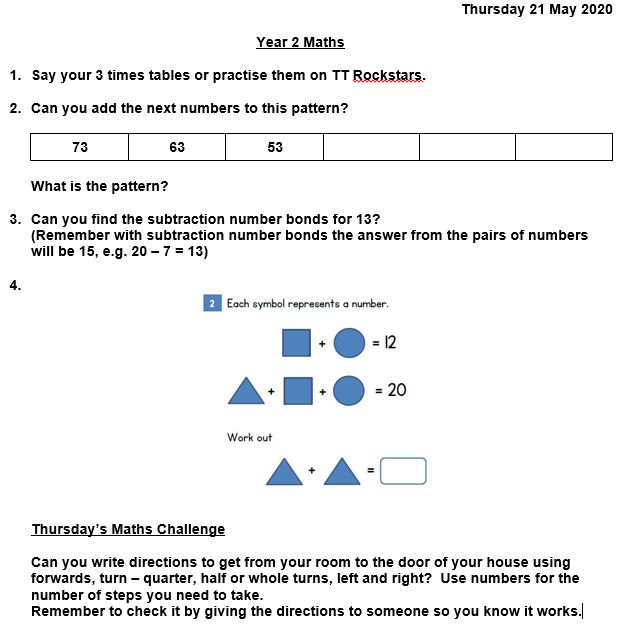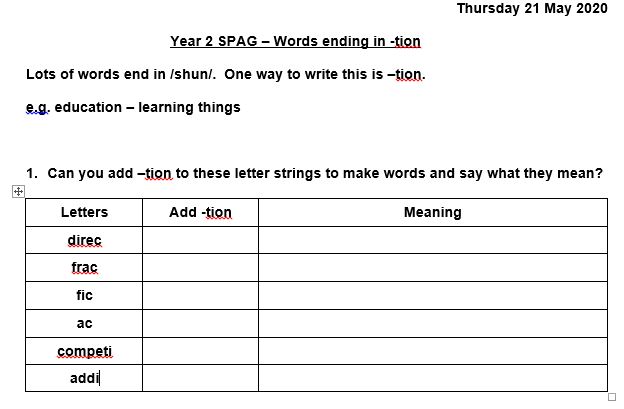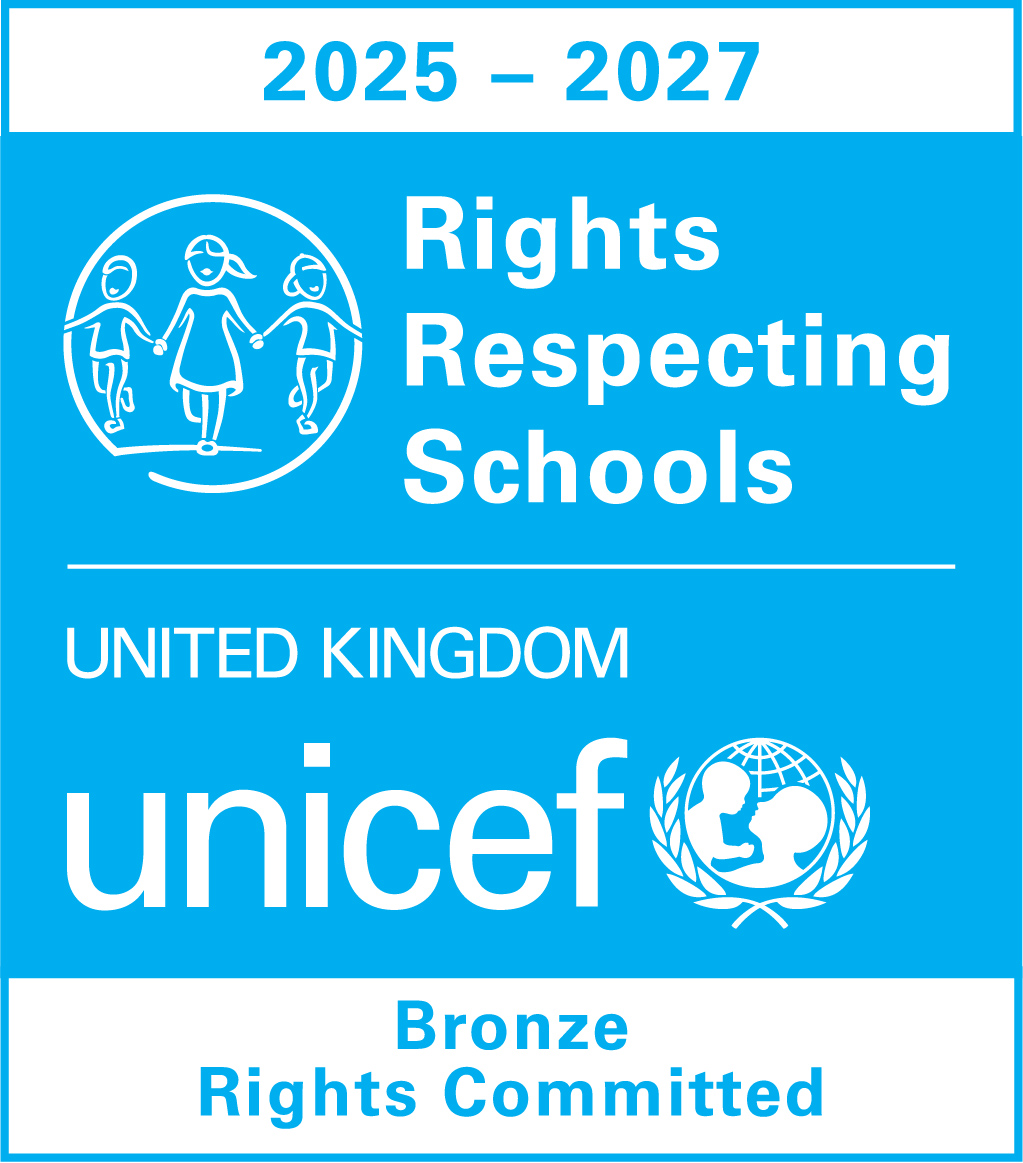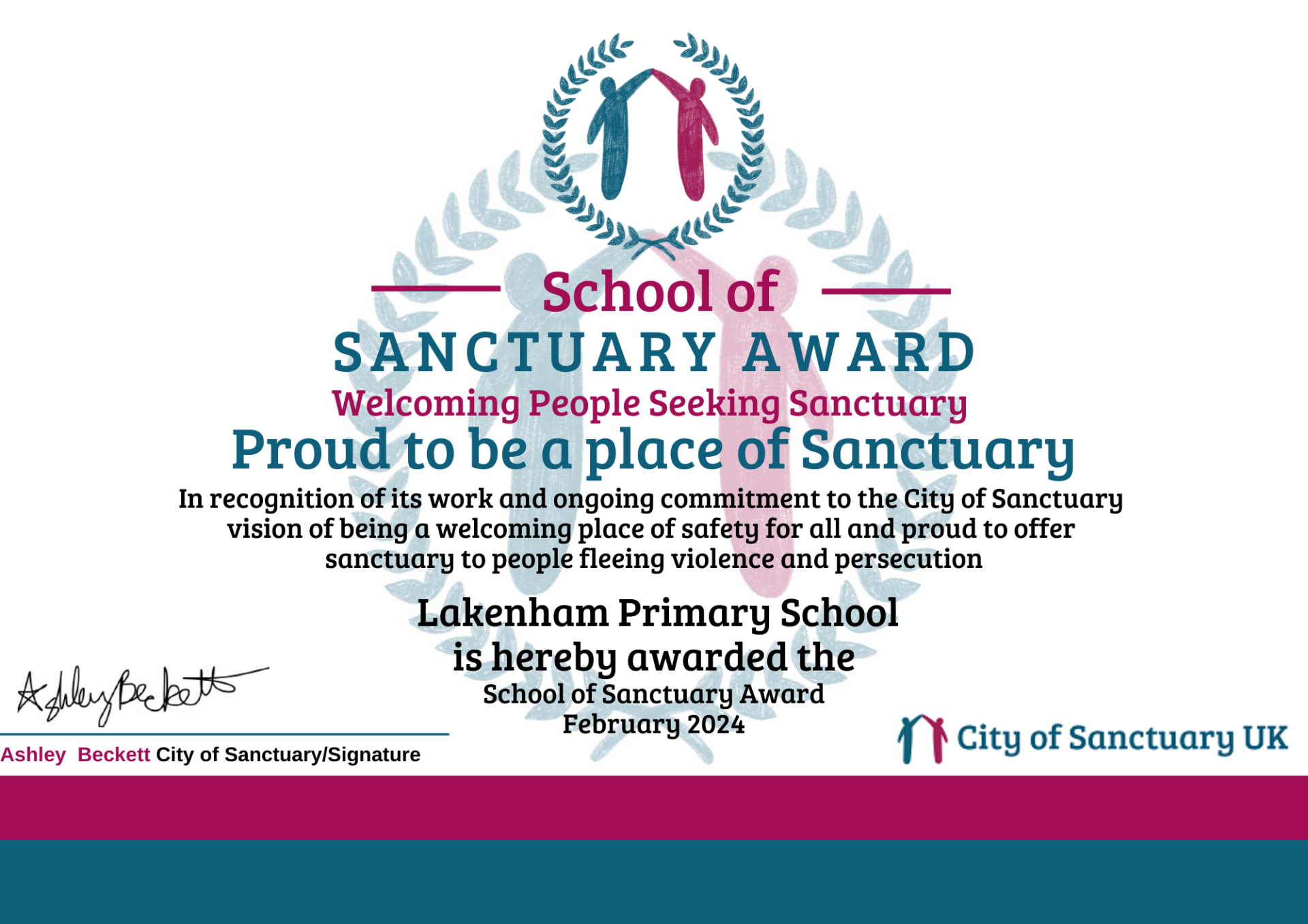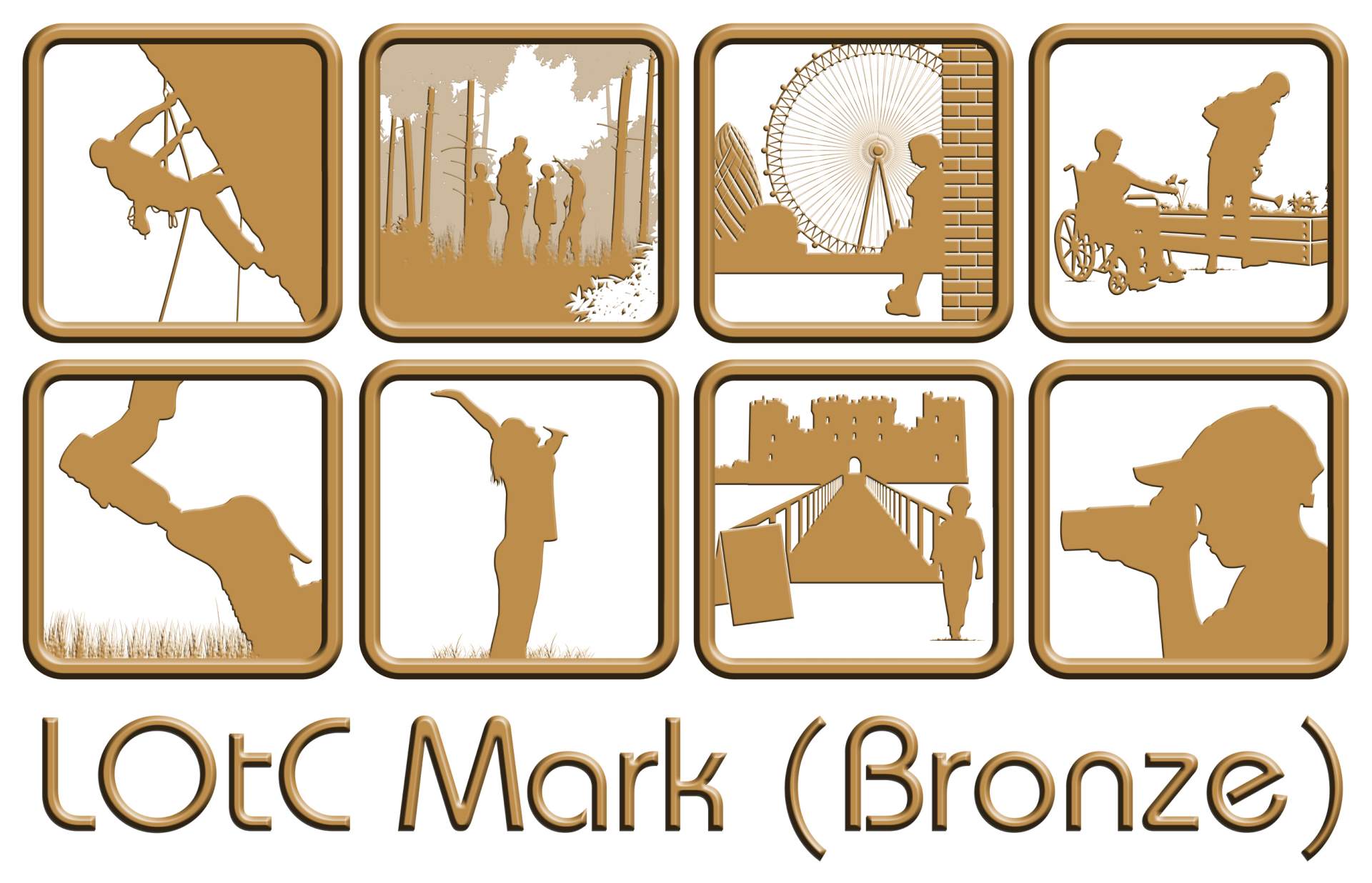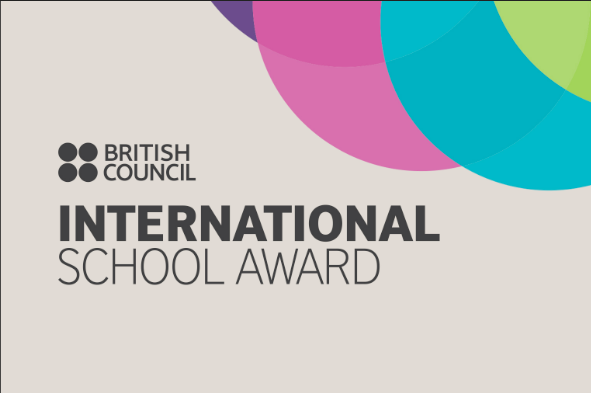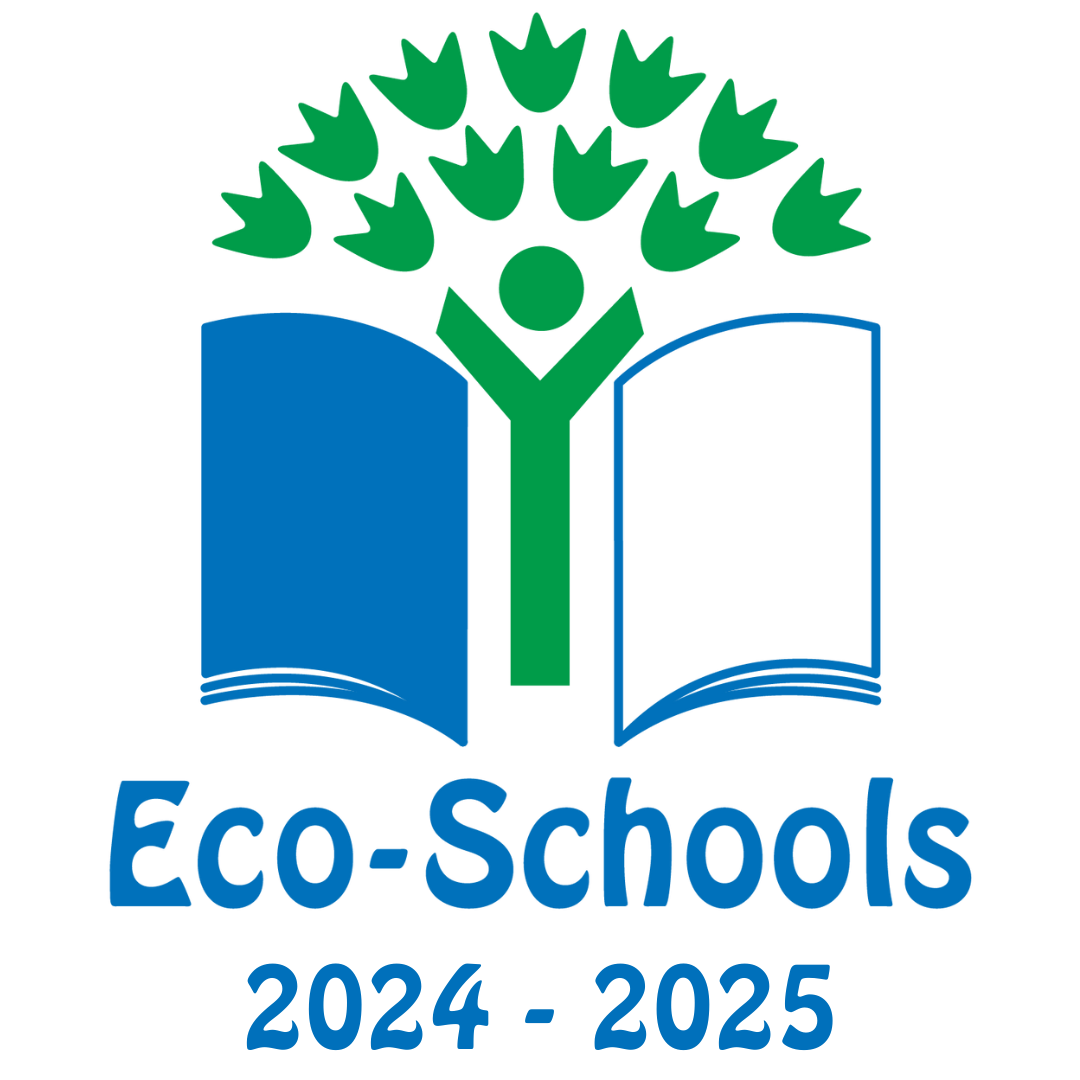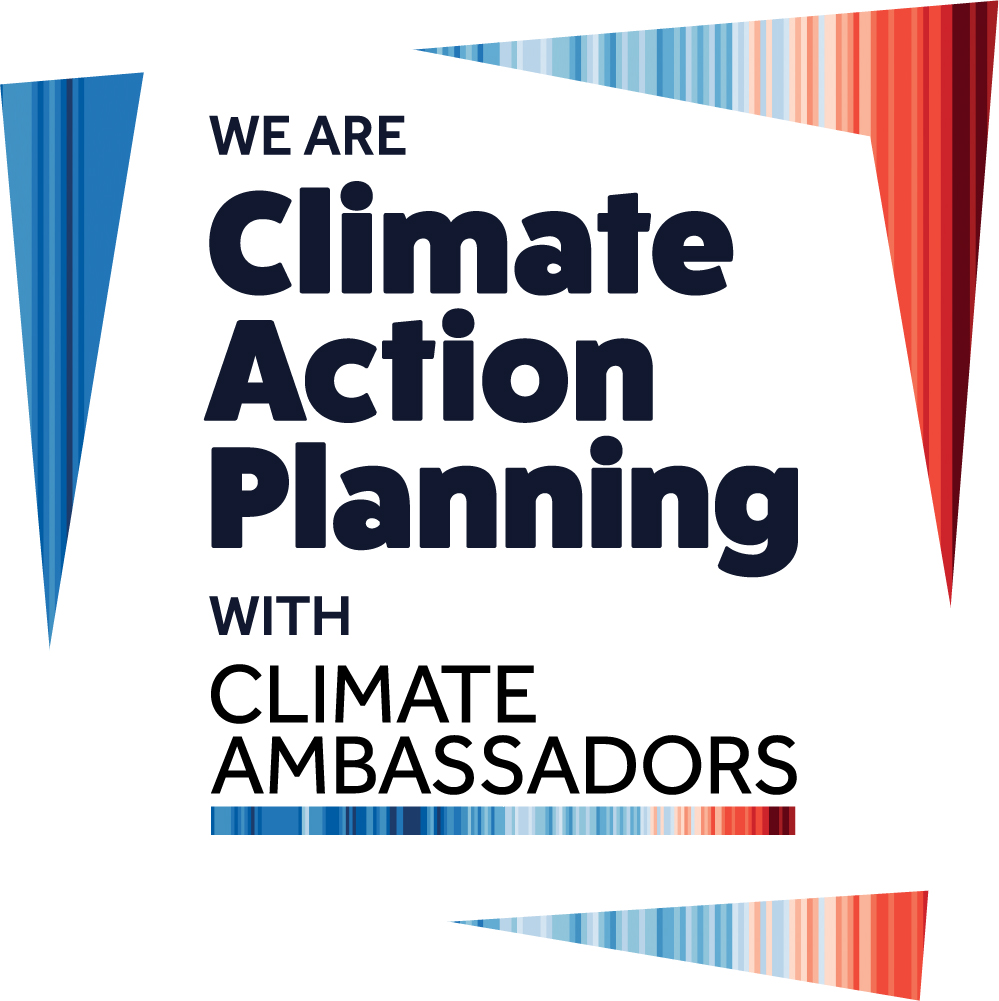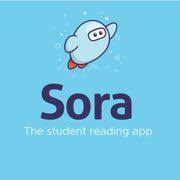Year 2 Home Learning Archive
Monday 6th July 2020
What is an instruction text?
An instruction text is a piece of non-fiction text which gives instructions on how to complete a task. The text may include organisational devices such as bullet points or numbers, diagrams or pictures.
This week we will be writing instruction about how to make your recycled materials product, how to make a sandwich or anything of your choice.
Phonics Week commencing 06.07.20
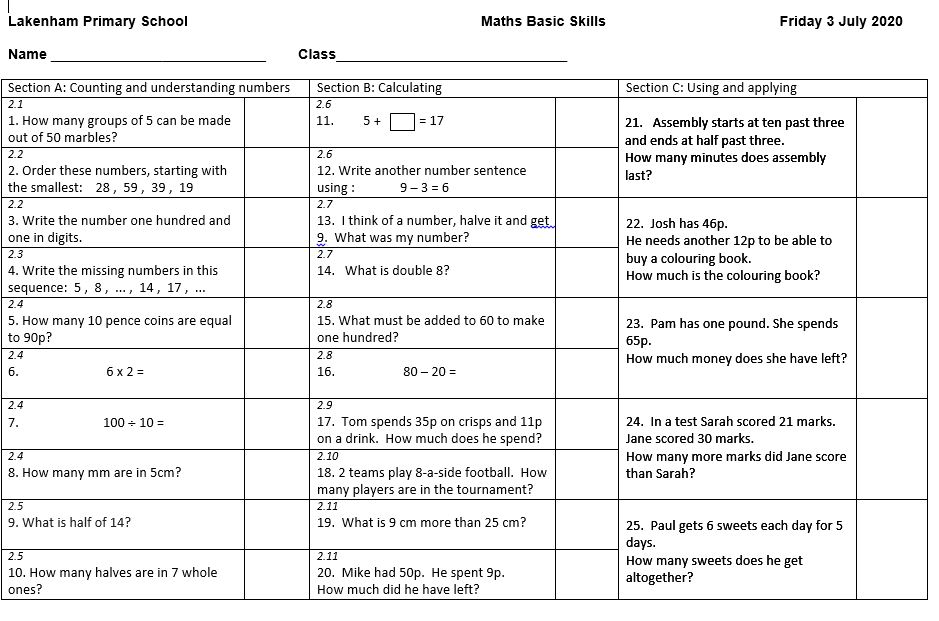
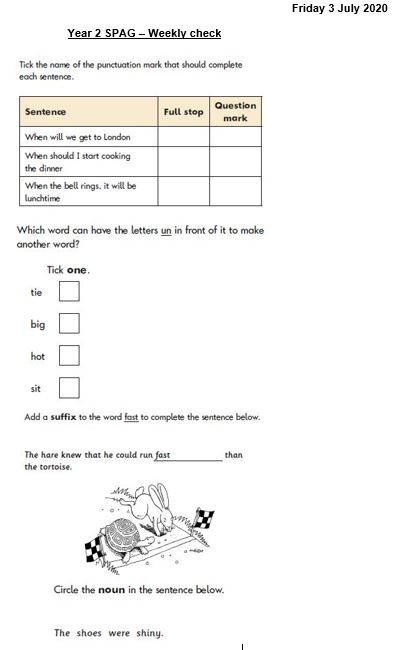
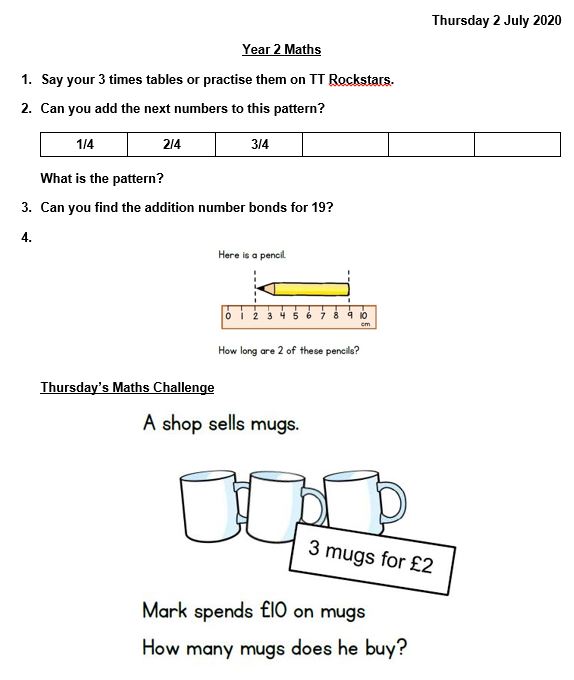
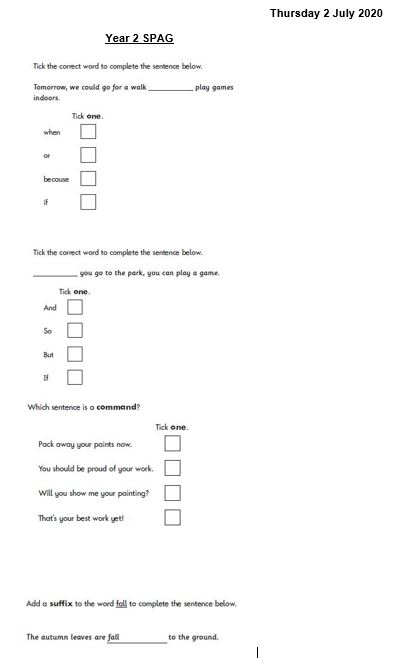
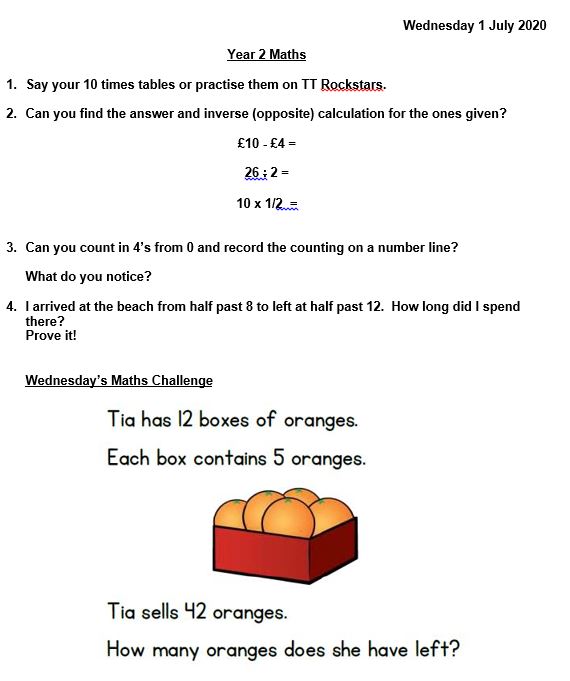
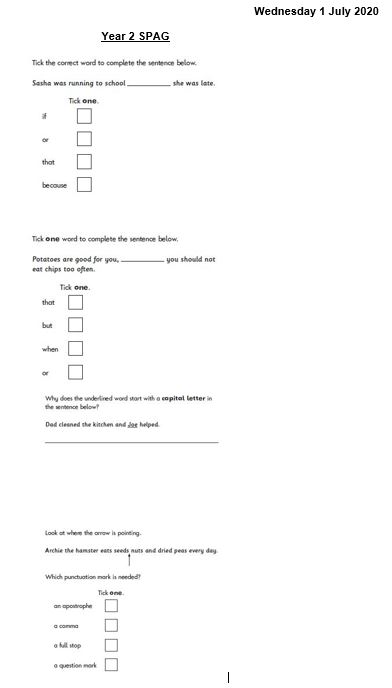
Wednesday 1st July 2020
Model Text
Complete the reading comprehensions as an example of a model text. Your adult can read this to you and you can answer the questions orally.
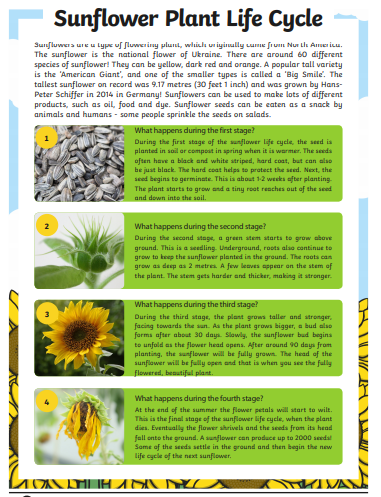
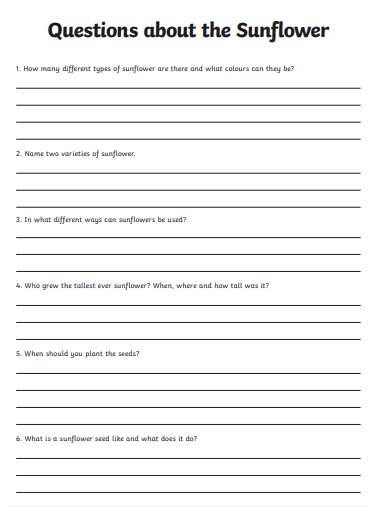
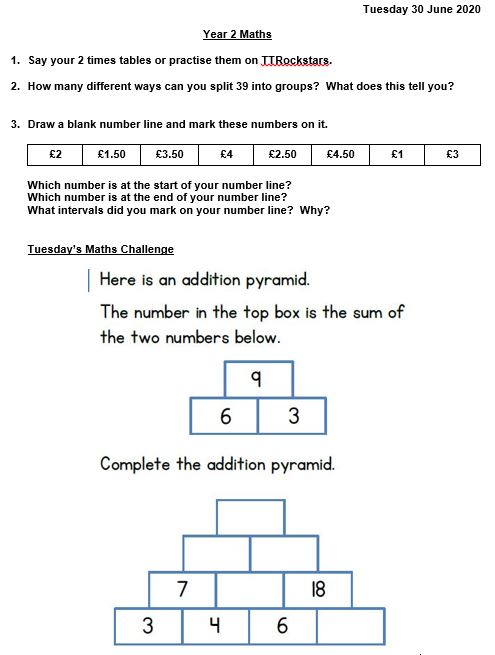
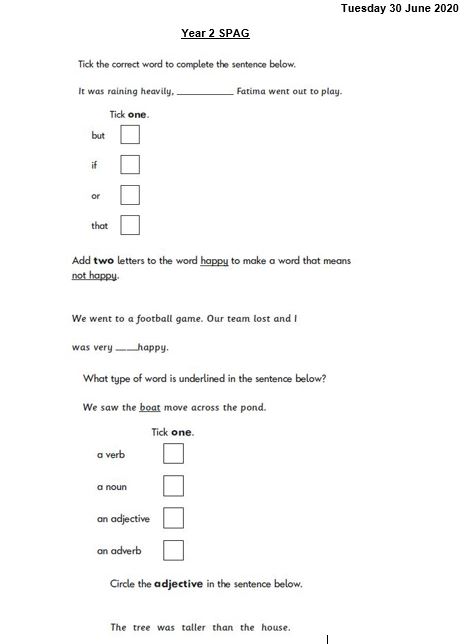
Tuesday 30th June 2020
Life Cycle Explanations
Watch the below Life cycle explanations and retell this to an adult:
What technical vocabulary do you notice? Make a note of this and try to use it in your explanation.
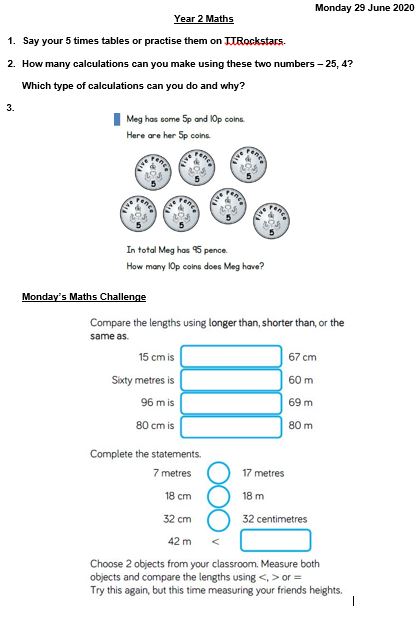
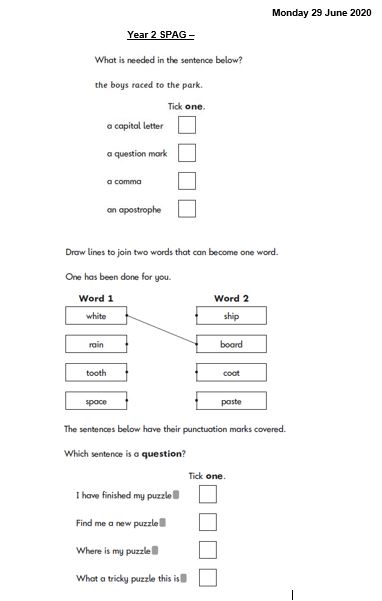
Monday 29th June 2020
Explanations
What is an Explanation Text?
An Explanation text is a piece of non-fiction writing explaining an action process or event in a detailed but simple way. It features numbered points, time connectives, pictures, diagrams, labels and captions to help the receiver understand the process of what’s being delivered.
Chris Packham explains this here
Phonics week commencing 29.06.20
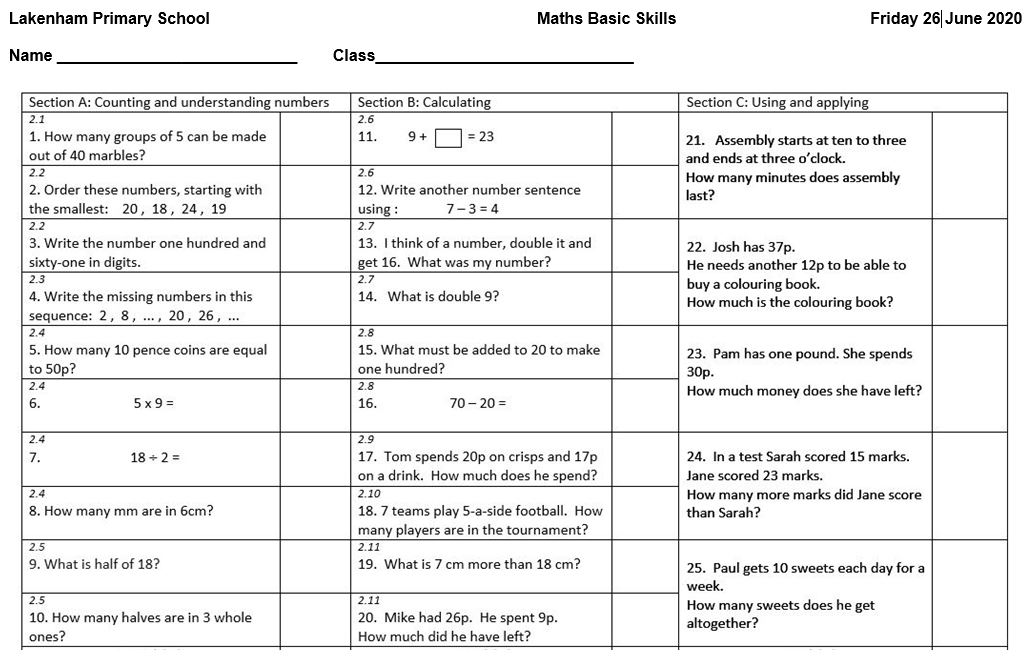
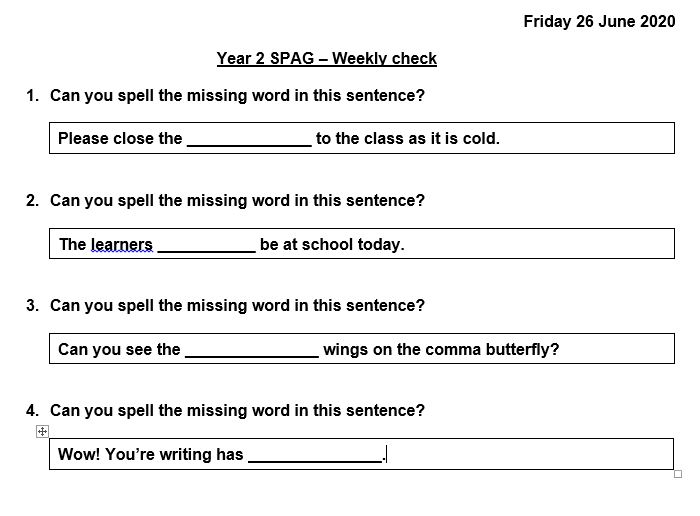
Friday 26th June 2020
Plant Haikus
A Haiku is a Japanese poem of seventeen syllables, in three lines of five, seven, and five syllables. These traditionally use images of the natural world. Try writing your own:
Waxy leaves curving
Around an evergreen bush—
Razor points untouched
Three wilting lilies
Red pollen on a bookshelf
And, somehow, my shirt
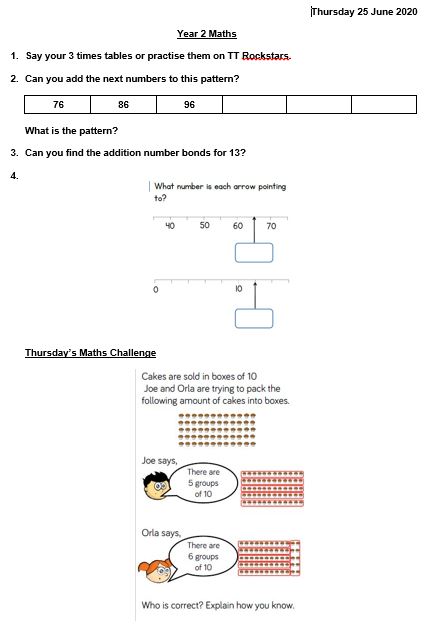
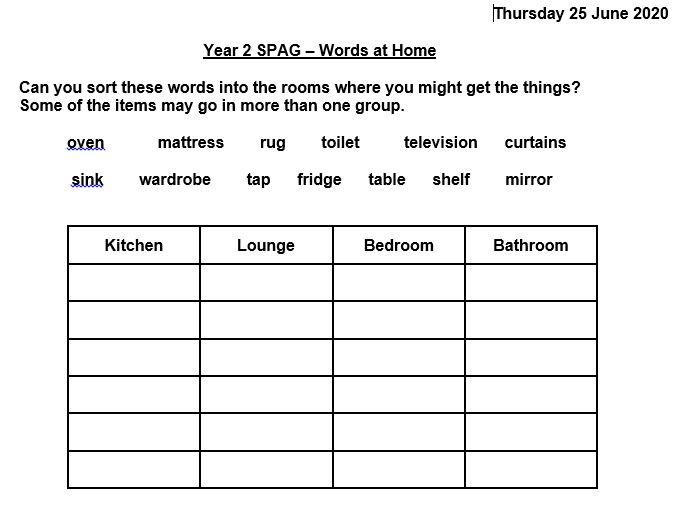
Thursday 25th June 2020
Acrostic Poems
Write an acrostic poem about a plant.
Use the tree sheet to start you off and then write some for your plant of choice.
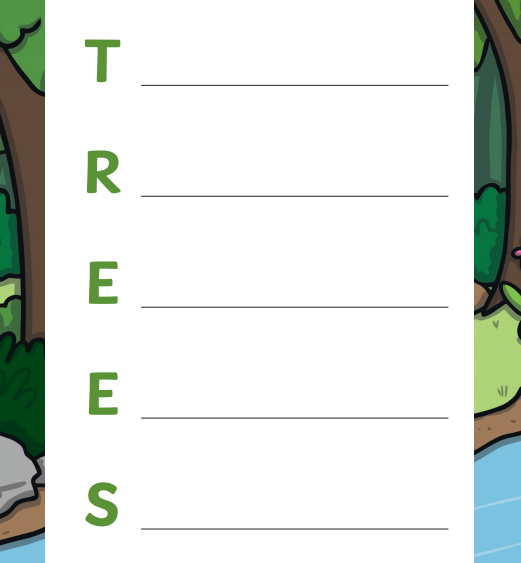
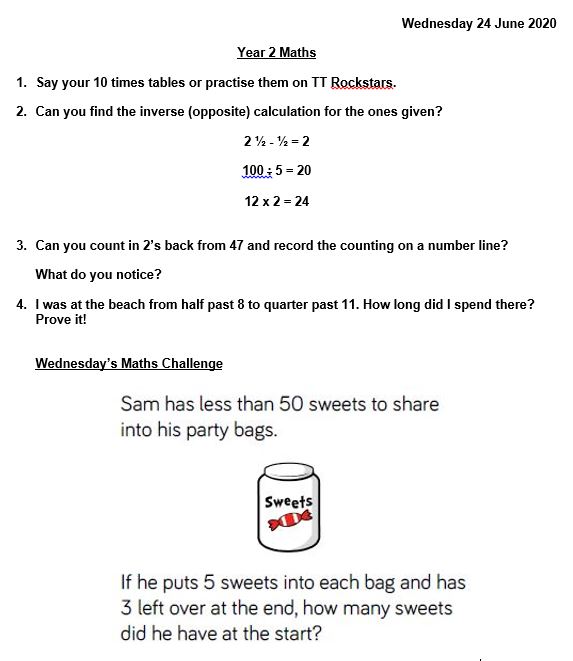
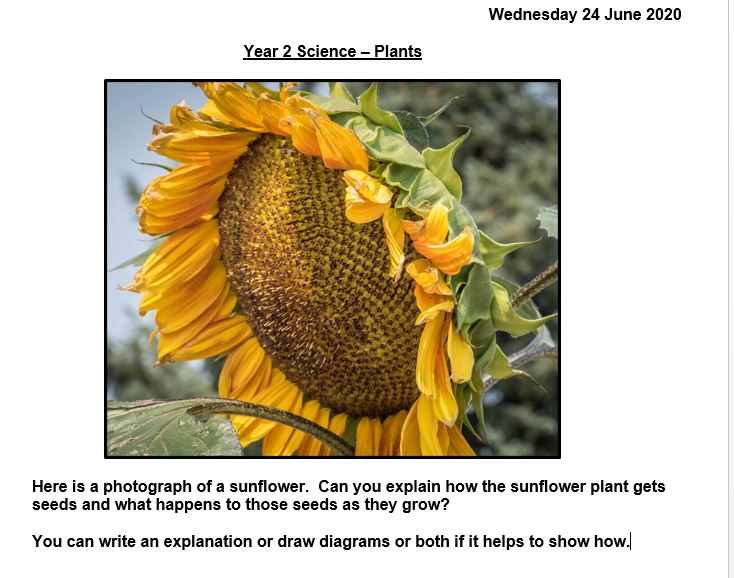
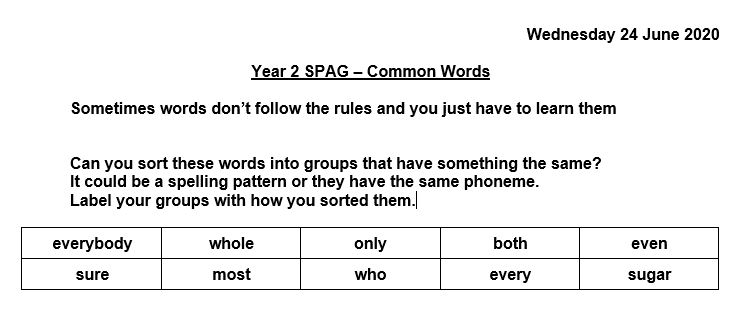
Wednesday 24th June 2020
Uplevelling a poem
- - Look at the Little Brown Seed poem. Look at the adjectives used. Rewrite this poem using more interesting language eg.
Little brown seeds so small and round,
Are sleeping quietly underground could be changed to
Tiny bronze seeds so minute and beadlike
Are slumbering peacefully in the earth
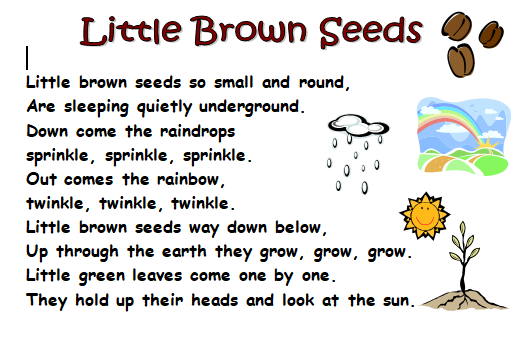
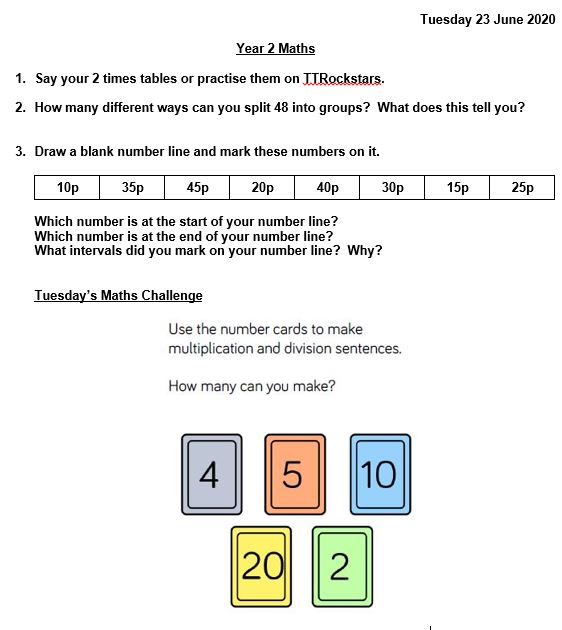
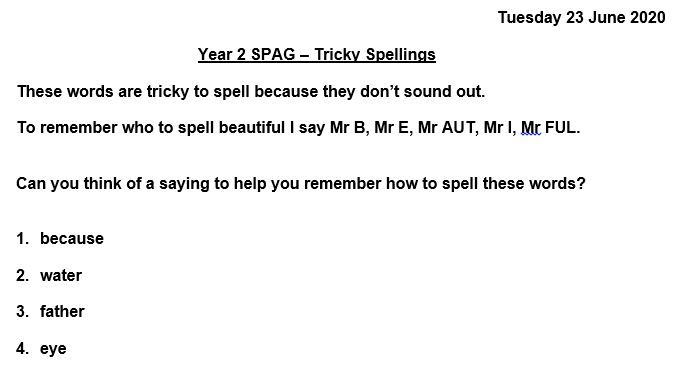
Tuesday 23rd June 2020
Riddles
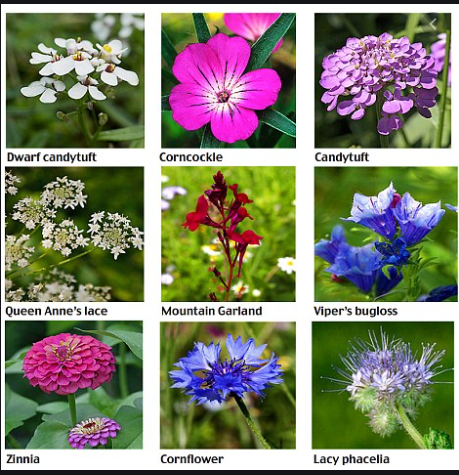
- Pick one of the pictures (but don’t tell your adult which one!) and describe it to them. Can they guess which one you picked?
- Have a go at writing a plant riddle:
My eye is dark,
and my mane is yellow.
You may see me at the mart.
and I’m probably taller than you, fellow.
What am I?
Seeds
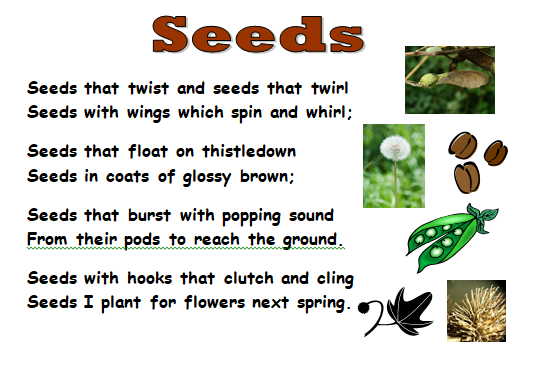
E - What is "thistledown"? It is often used as an mage. Why do you think this is?
R - What do all the seeds do in the poem?
I - How are the seeds similar and how are they different?
C - What effect is the poet trying to make?
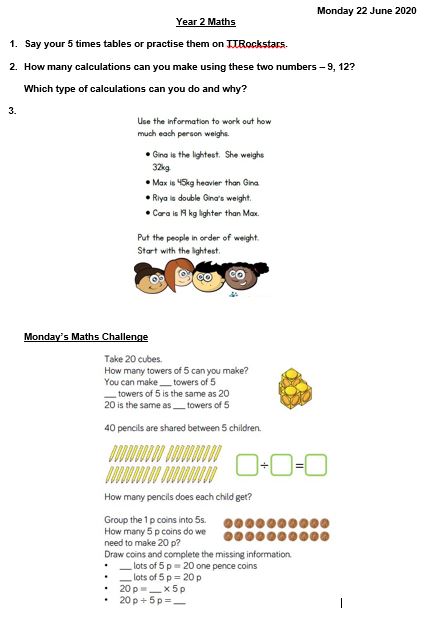
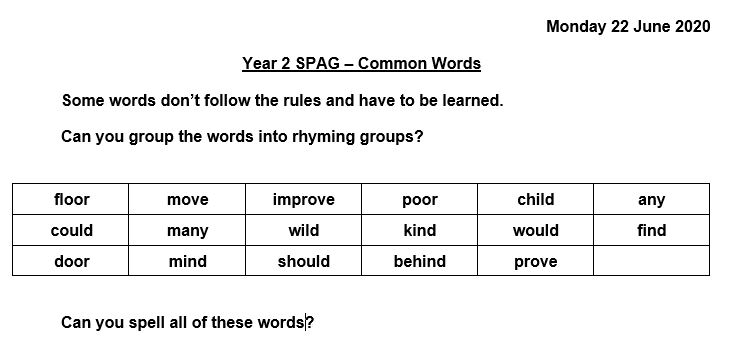
Monday 22nd June 2020
Phonics week commencing 22nd June 2020
Describing plants
This week we will be looking closely at plants and writing some different types of poems.
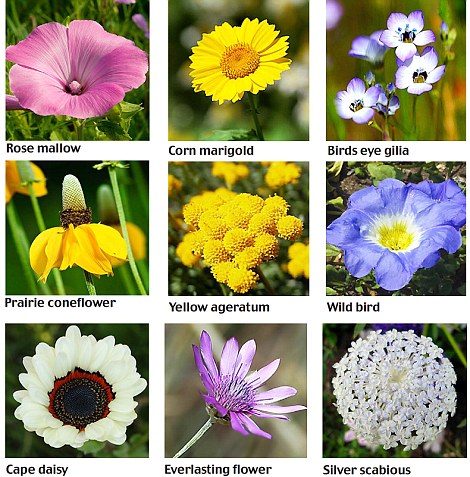
- Look at the pictures provided of a variety of plants. Write as many adjectives to describe the plant as possible. Can you think of some similes and metaphors?
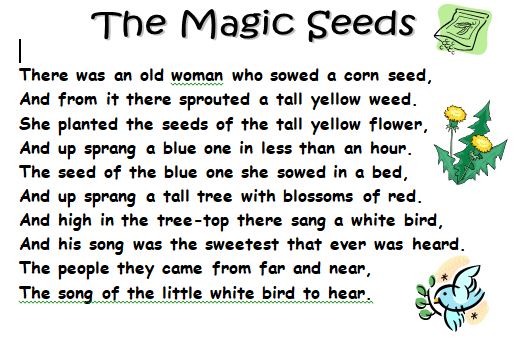
E - What does "sow" mean? Is it a noun, adjective or verb?
R - What happens in the poem?
I - How are all seeds "magic"?
C - How does the rhyme help you read the poem?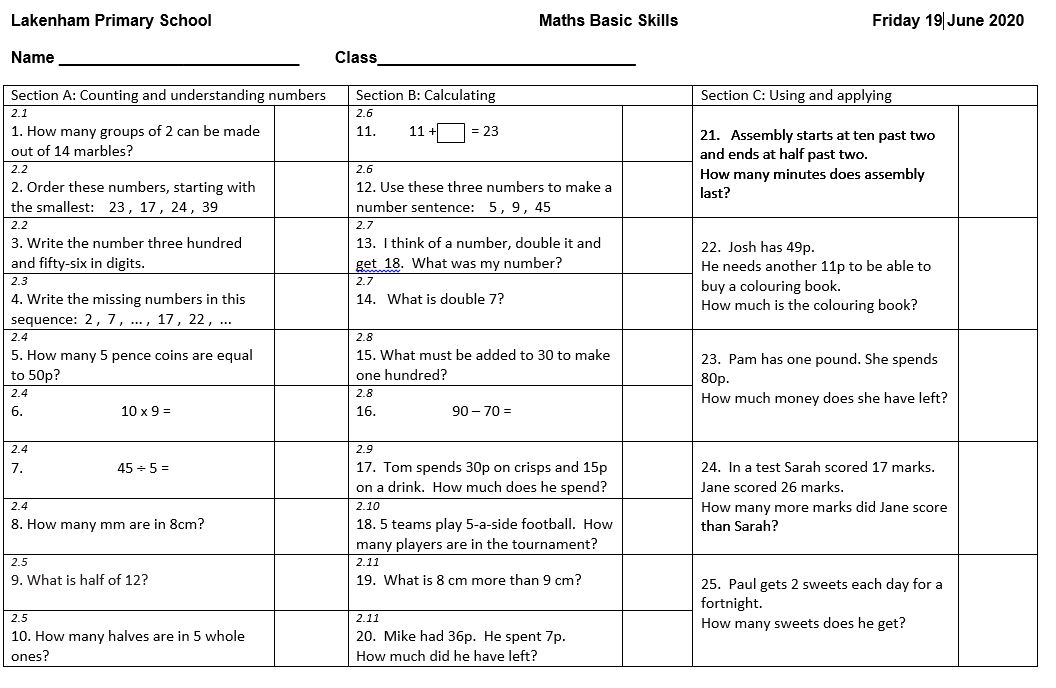
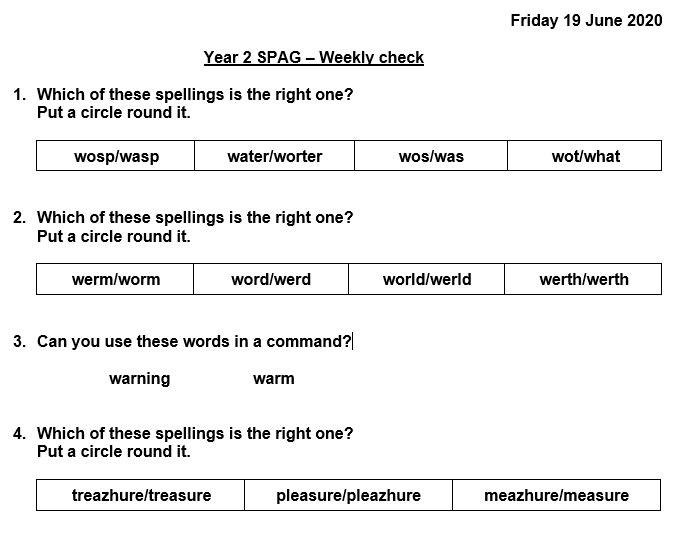
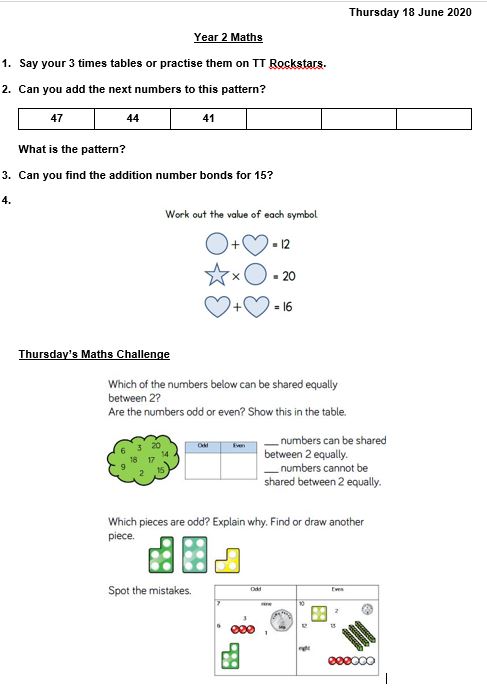
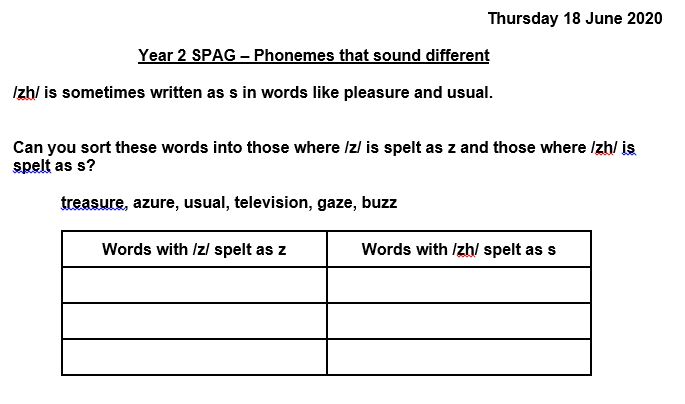
Wednesday 18th June 2020
Wolfman by Michael Rosen
Before you begin to watch the story, be on the lookout for a message that people fear those who are different, in most cases with little or no reason.
Can the you find evidence that Wolfman is not so dangerous as the people of the town think?
What do you think about Wolfman?
The Garden of hope
The full title of a Child's Garden is A Child's Garden, A Story of Hope.
Why do you think this is a story of hope? What makes you hopeful?
Write down your ideas on a Hope Cloud.
The children in Year 2 this year have made me hopeful for the future. You have all been so interested in important topics such as the environment and equality for all, that I think you will all ensure the world will become a better place.
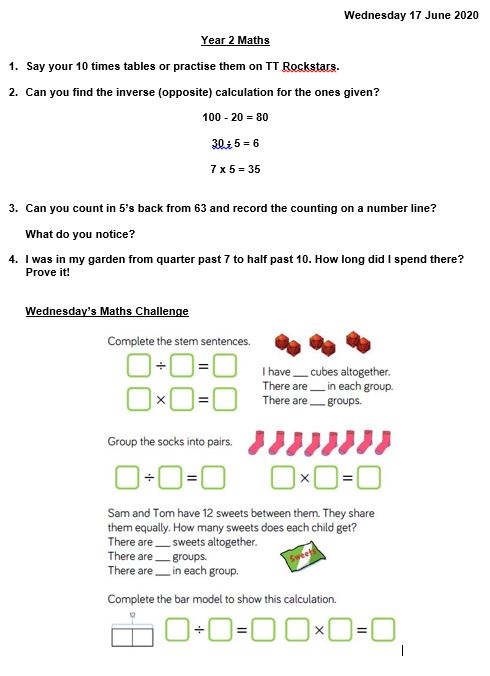
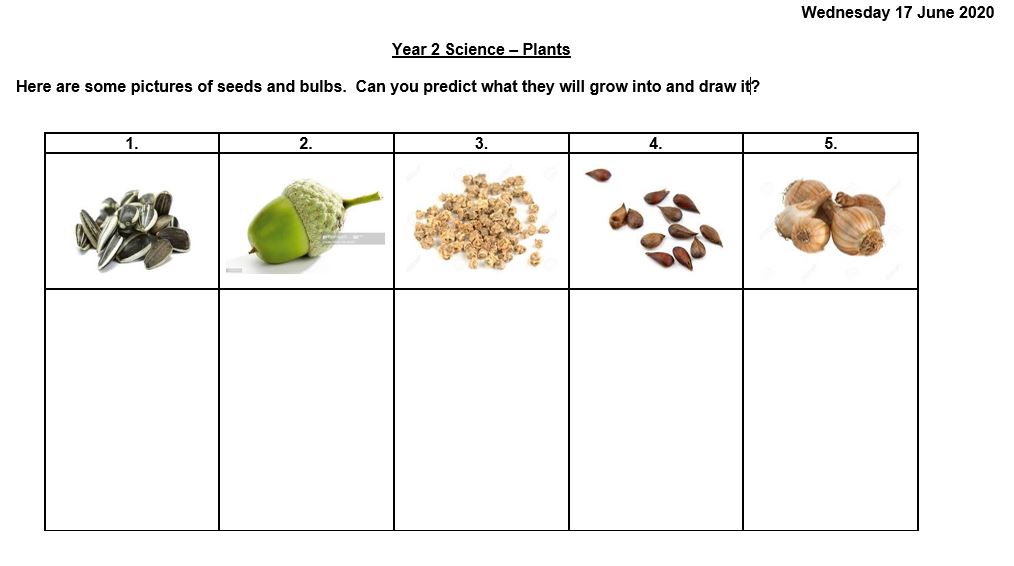
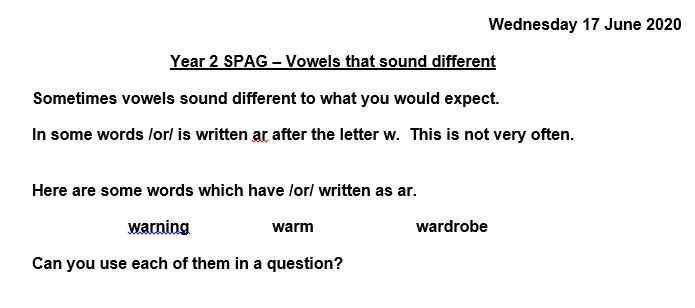
Wednesday 17th June 2020
A Child's Garden
Draw a table (or choose another way to display this information) and write down adjectives to describe the ground before and after the vine grew.
Use a thesaurus or a dictionary (which can be found online) to help you find the most interesting / appropriate word.
My Name is Not Refugee
Are there any clues as to what has happened? Is the boy’s mother telling the truth? If not, why not? Where do they go and how do they get there? Why might the boy be called "Refugee" and not by his name?
Article 7 in the United Nations Convention on the Rights of the Child is: You have the right to have a name and a nationality.
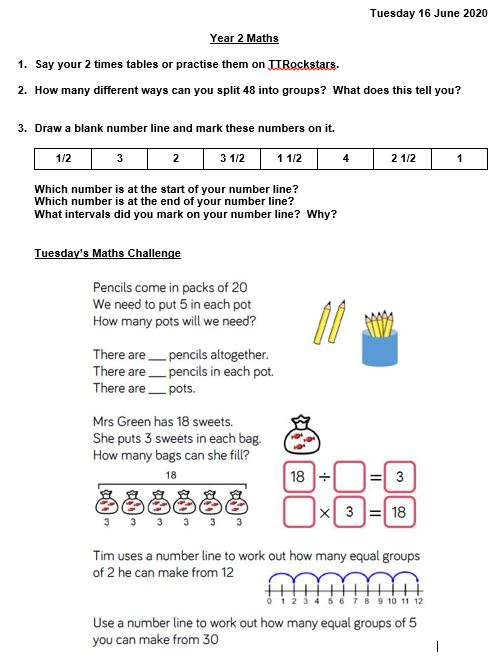
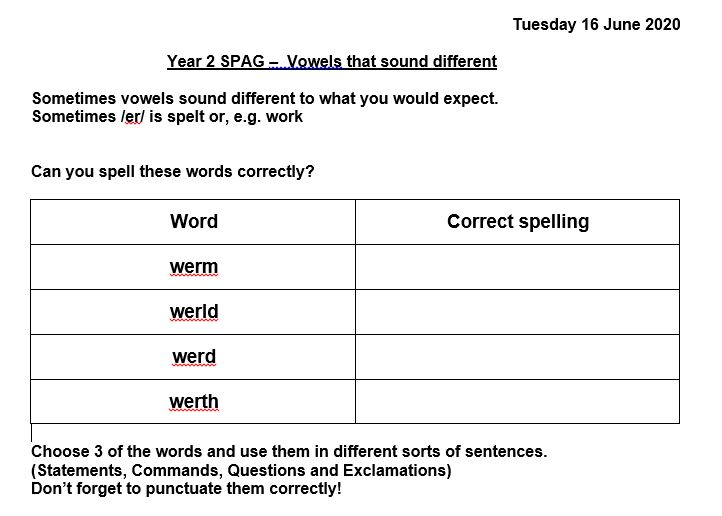
Tuesday 16th June
A Child's Garden
Put the boy’s feelings on a time line from how he felt at the beginning of the story to the end of the story. Now make some thought bubbles and write down his thoughts and feelings at the beginning, the middle and the end of the story.
The Journey by Francesca Senna
When and where do you think the story is set? What gives
you this impression? The author/illustrator has not specified
the country in which this story is set, or their destination
country. Why do you think this has been left open to
interpretation?
What emotions are the characters feeling? What
clues are there in text and illustrations to help you
answer this question? How do you think you would
feel in this situation?
What are some of the main themes of the text
(e.g. fear, safety, war, change)?What messages about these
themes do you think the text is communicating?
How do you feel at the end of the story?
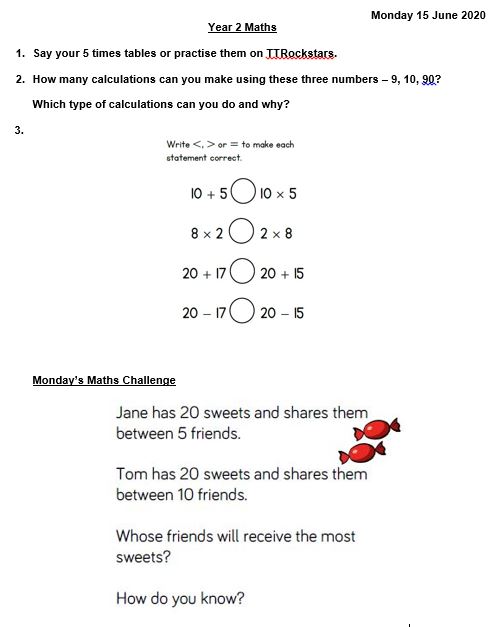
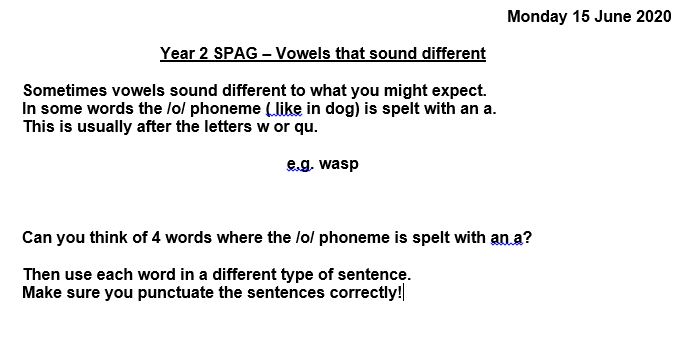
Monday 15th June 2020
Please note there are only phase 5 phonics this week.
A Child's Garden
https://www.youtube.com/watch?v=P4T_LzSUabw
Can you put the story into a text map or story mountain?
Something Else
Watch the story with an adult. What do you notice about the story?
What do they all have in common? Why is he different?
Why do you think that they have said he is ‘not like us’?
When you want to be friends with people, do you ever do the things that they do?
Can you find any similarities between Something Else and Something?
Why does he tell the new creature to leave?
Why does he change his mind?
Why do you think they welcome the boy who arrives at the end?
What do you think this story can teach us?
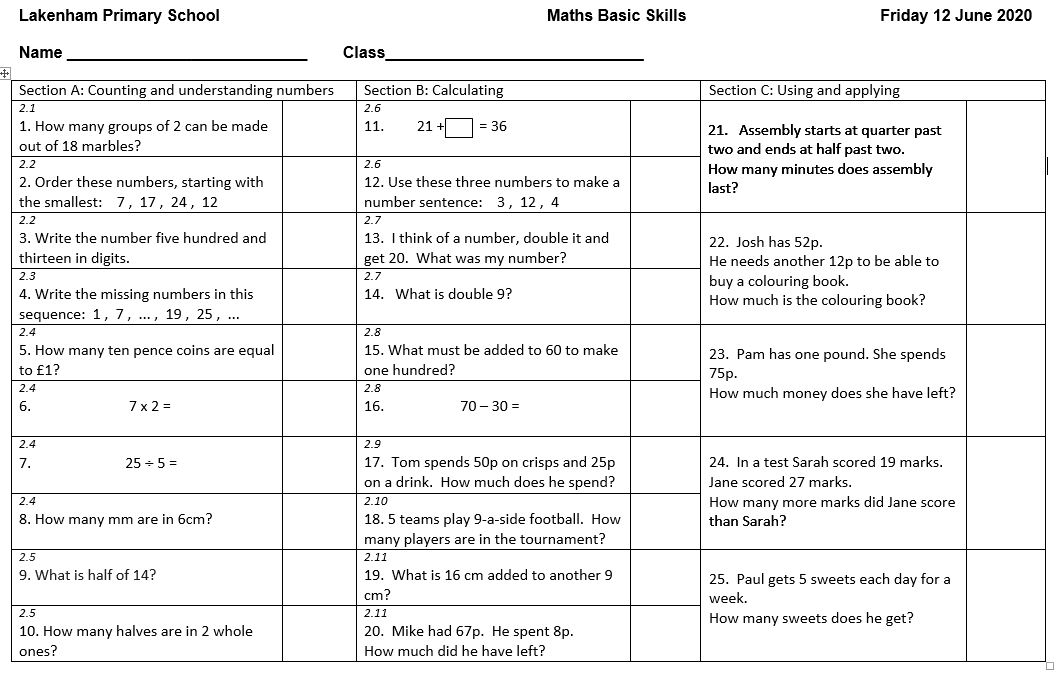
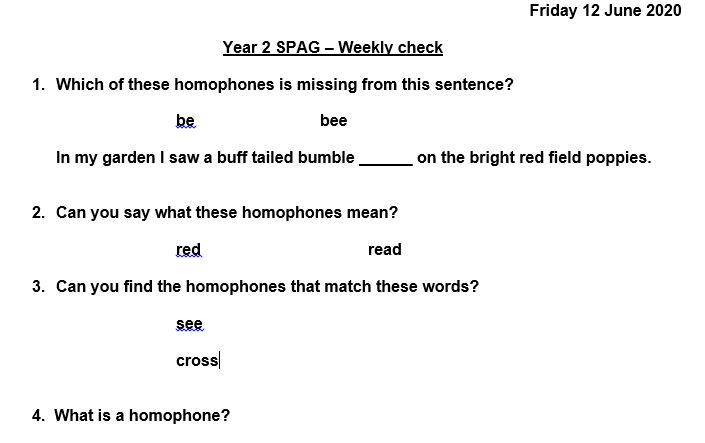
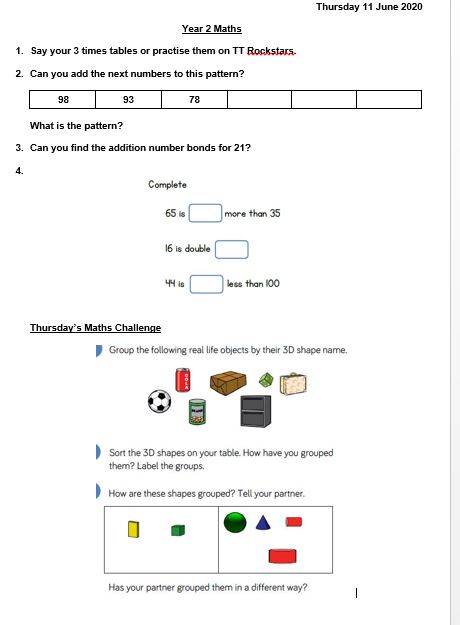
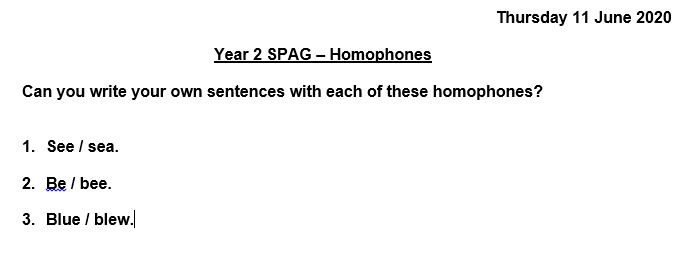
Thursday 11th June 2020
The Mixed Up Chameleon
E - What is meant by "mixed up" in this story?
R - what happens in the story? How does the story build without words?
I - How do the Chameleon's feelings change throughout the story?
C - What are the similarities and differences between this story and the others we have looked at this week?
Seed Germination
Can you explain what is happening in the video using the time conjunctions on the word mat below?
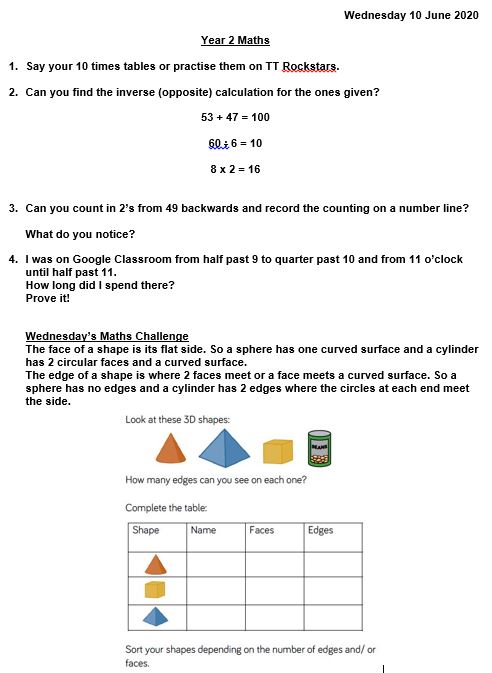
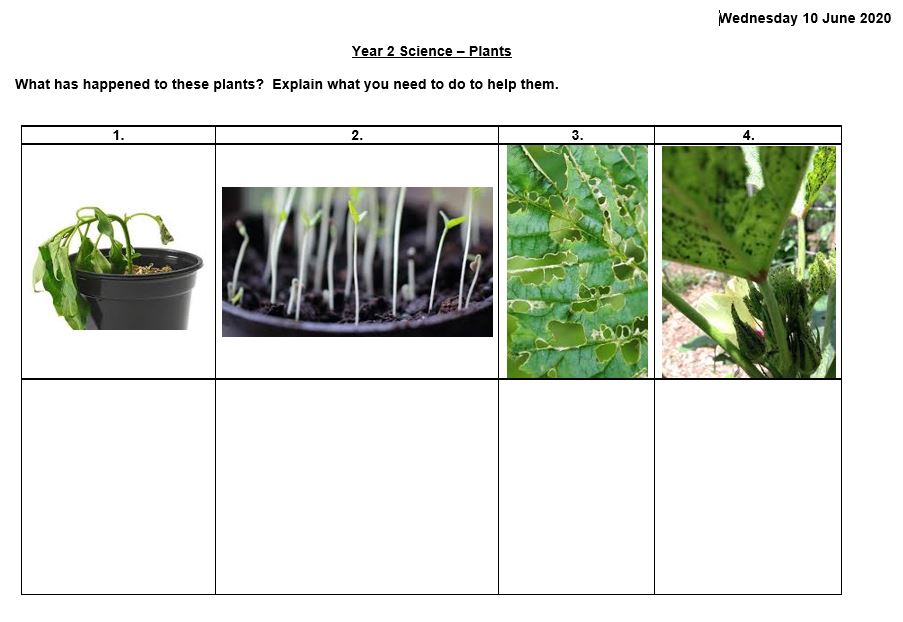
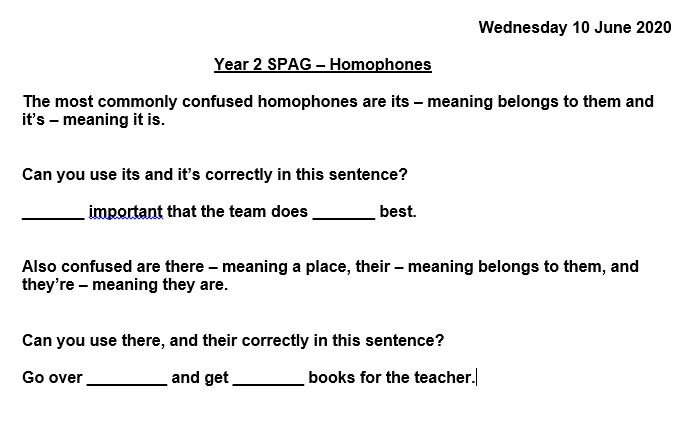
Wednesday 10th June 2020
The Bad Tempered Lady Bird
E - What other words could used which mean the same as "bad tempered"?
R - What do you notice about the animals he encounters as he goes along?
I - Why do you think the Ladybird was so bad tempered?
C - Is like the other Eric Carle books we have looked at already this week?
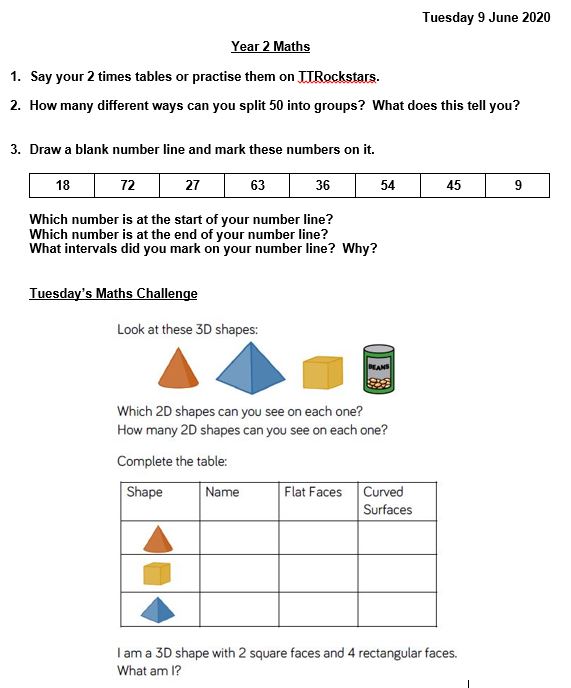
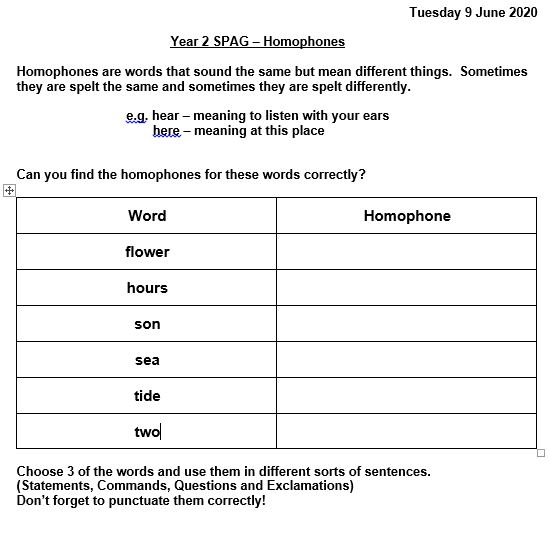
Tuesday 9th June 2020
The Very Busy Spider
E - What is the spider doing that makes her so busy?
R - How does the story build?
I - Where do you think the story takes place?
C - How is this story similar or different to The Tiny Seed?
The Journey of the Tiny Seed
This activity will take you a few days.
Draw the journey that the seed went on as either a text map, story mountain or another way of your choice.
Label your journey drawing using time conjunctions such as:
first, next, then, after that, suddenly, at the same time, just that moment.
Use the word mat to help you.
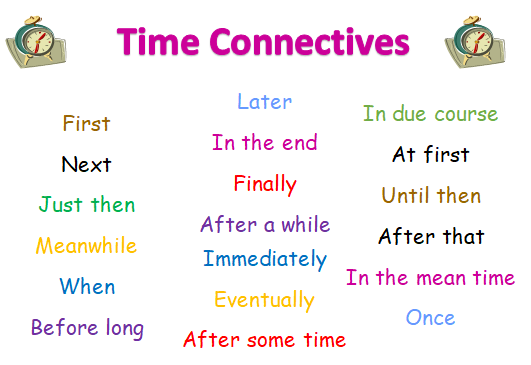
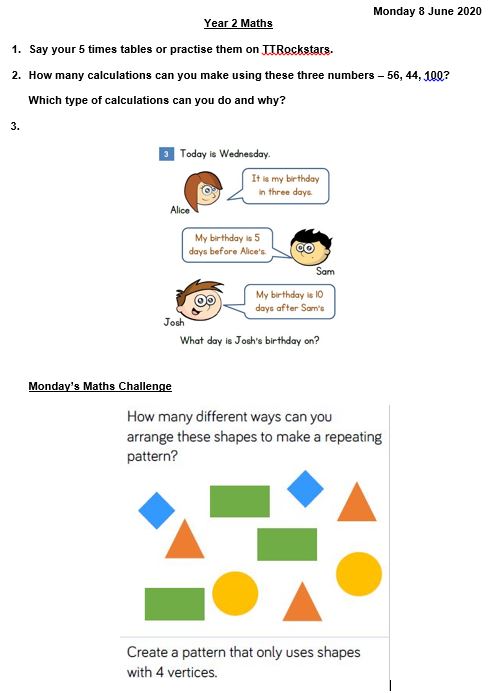
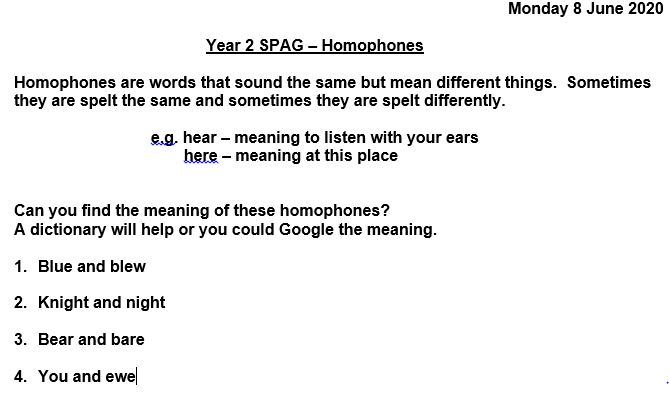
Monday 8th June 2020
The Tiny Seed
E - What other words can you think of that mean the same as "tiny"? Which are more interesting?
R - What is happening to the seed?
I - What process is the story describing?
C - How else could the author have written about this process?
The Seed Dispersal Song
What is the similarity to this song and the story of the Tiny Seed?
Friday 5th June 2020
The Gardener
E - What does "April showers bring May flowers" mean?
R - What does she want her uncle to do?
I - What importance does the garden have to Lydia Grace?
C - How does the fact the book is written in letters build the story?
Making a Garden
Can you make a miniature garden? This can be in either the spring or winter.
How will you do this?
Will you use real natural materials or paper?
Will it be inside or outside?
Will there be a wall and buildings or just a garden, like paradise?
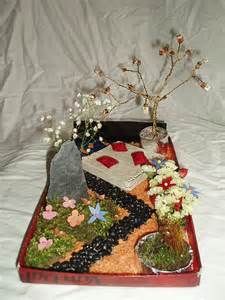
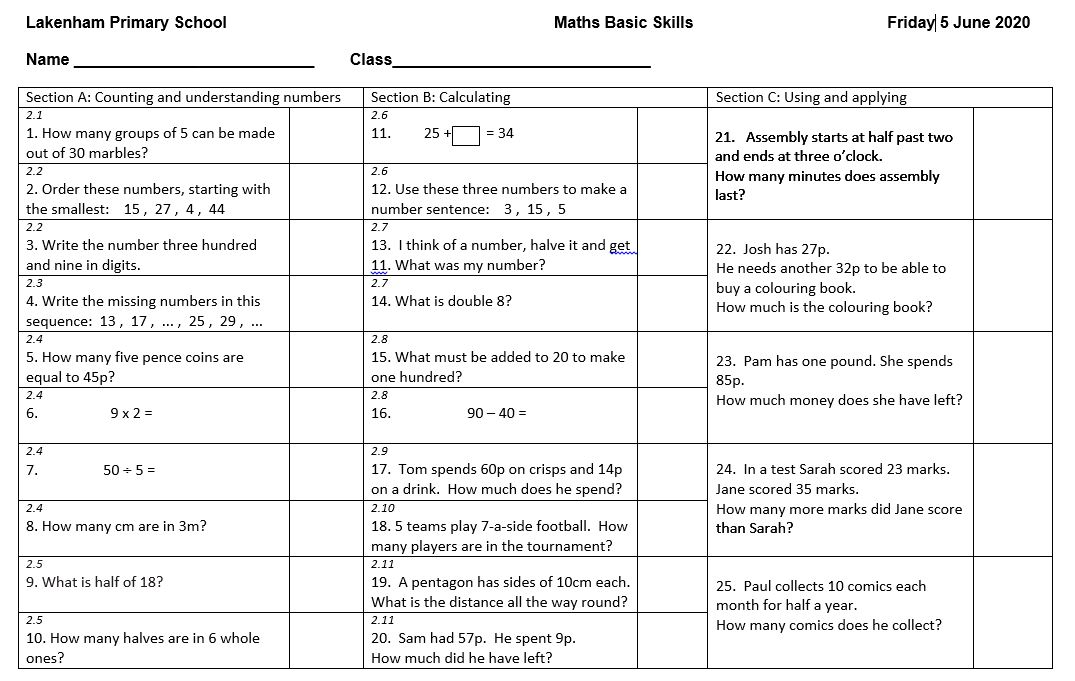
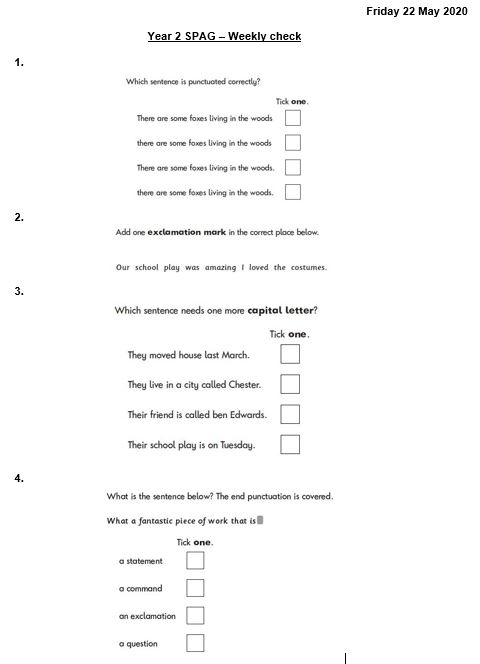
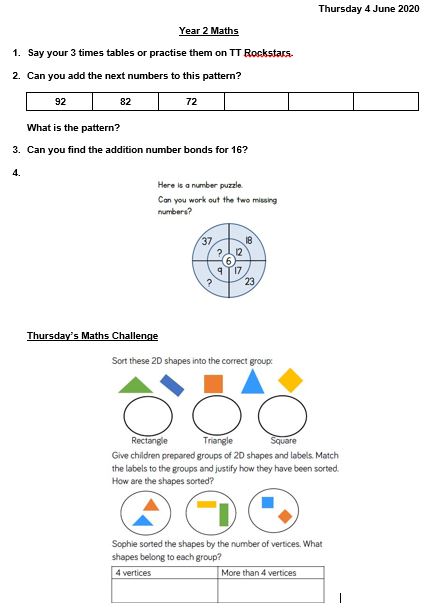
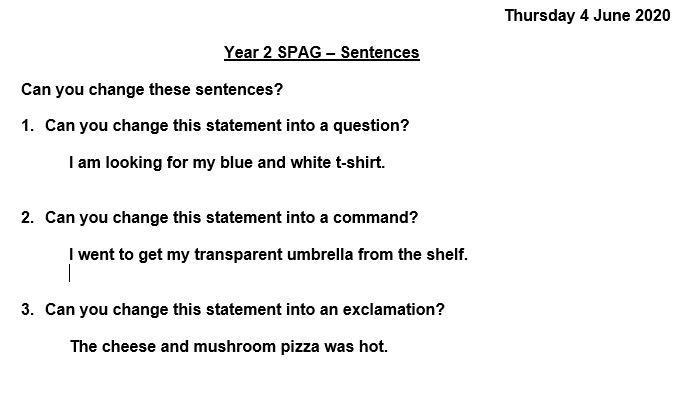
Thursday 4th June 2020
Up in the Garden, down in the Dirt
E - What are aphids?
R - What happens in the story?
I - Why is she jealous of the earth worms?
C - What is the author trying to teach us?
Character problems
We have looked at the story from the view of the characters.
What problems or challenges do the different characters face in the story? How do they overcome them?
Draw this on a story mountain (or tell your adult) thinking about the beginning of the story, the build up, the problem, the resolution and the end.
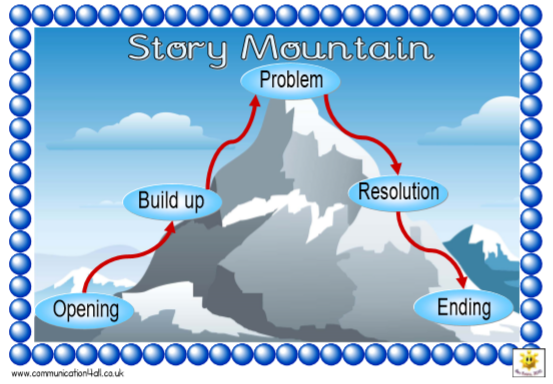
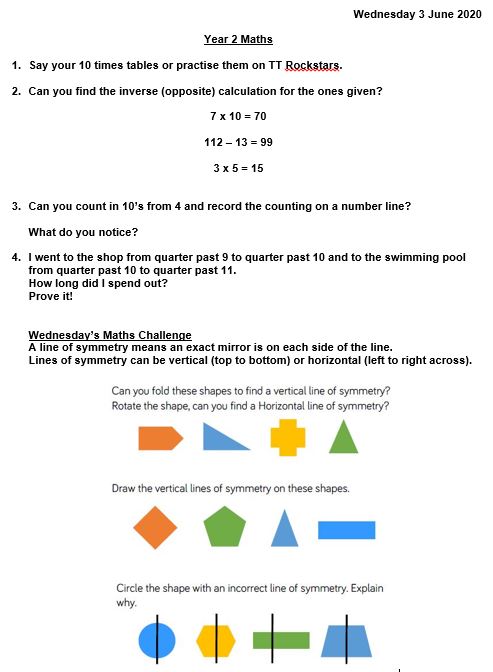
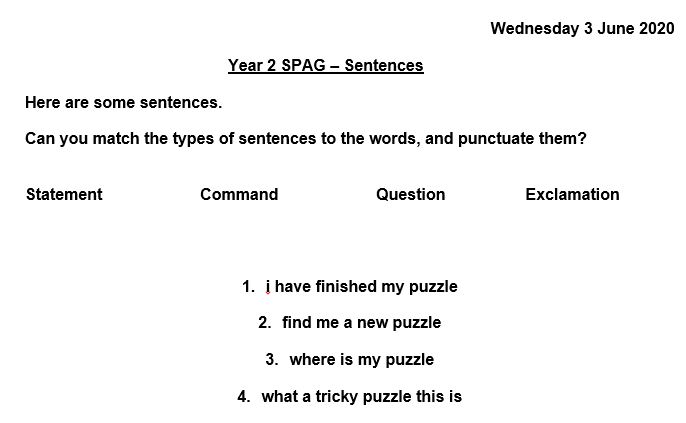
Wednesday 3rd June 2020
The Children of the Garden
What series of feelings do you think the children experienced in the garden before it was built, outside the garden after the wall was built, then inside the garden after the wall was broken down?
Write these feelings as ‘thought bubbles’.
The Curious Garden by Peter Brown
What led the boy up to the old broken down railroad and what did he find there?
What did the boy decide to do?
What is perseverance and what happened as a result of the boy's perseverance?
How did the garden grow and spread through the city?
How do you think the boy felt about his accomplishment?
How do you think the people in the city felt about the garden?
What would be some benefits of having such a beautiful garden in the city?
What do you think happened to the garden while the boy was unable to visit it?
How does this story demonstrate perseverance?
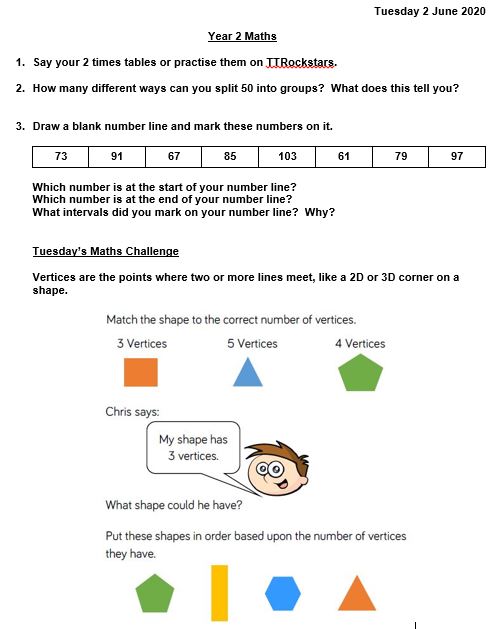
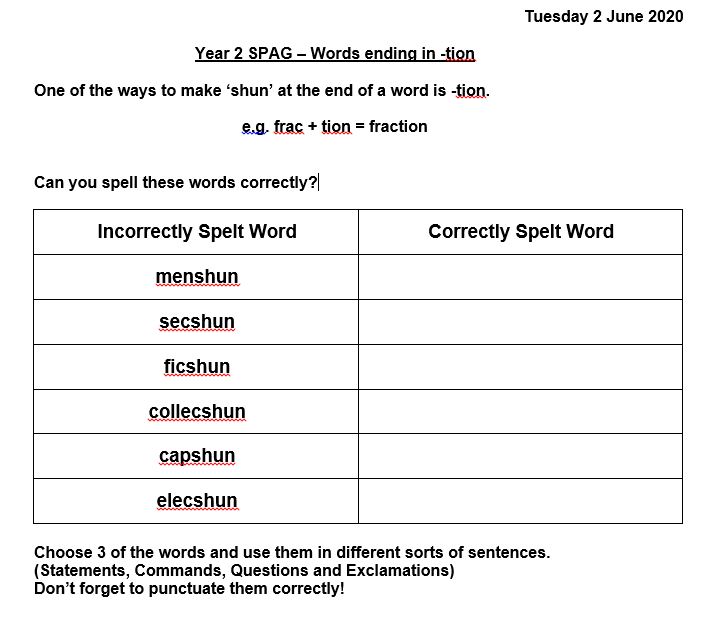
Tuesday 2nd June 2020
• List adjectives describing the giant both before, and after, he meets the little child. Draw the wall and write on it the ‘before’ adjectives. Draw the big axe and write next to it the ‘after’ adjectives.
• Now put these in a sentence, remembering to use commas between the adjectives.
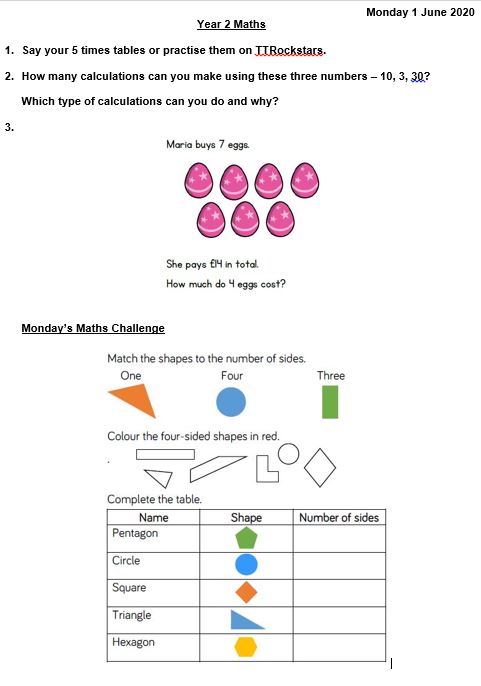
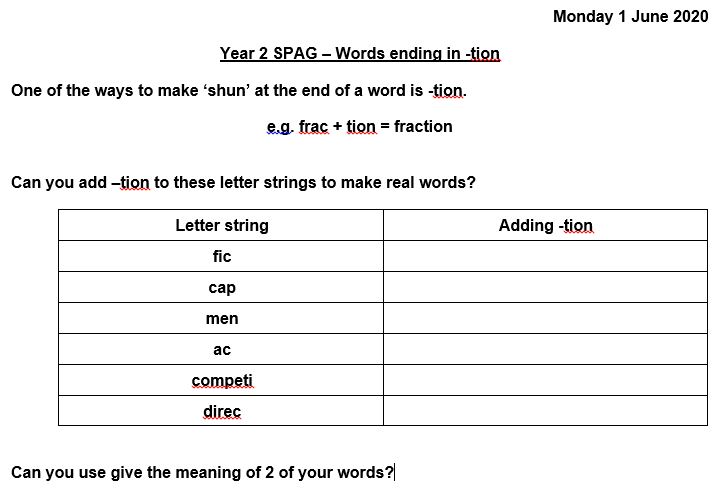
Monday 1st June 2020
The Selfish Giant
Can you summarise the key points of the story?
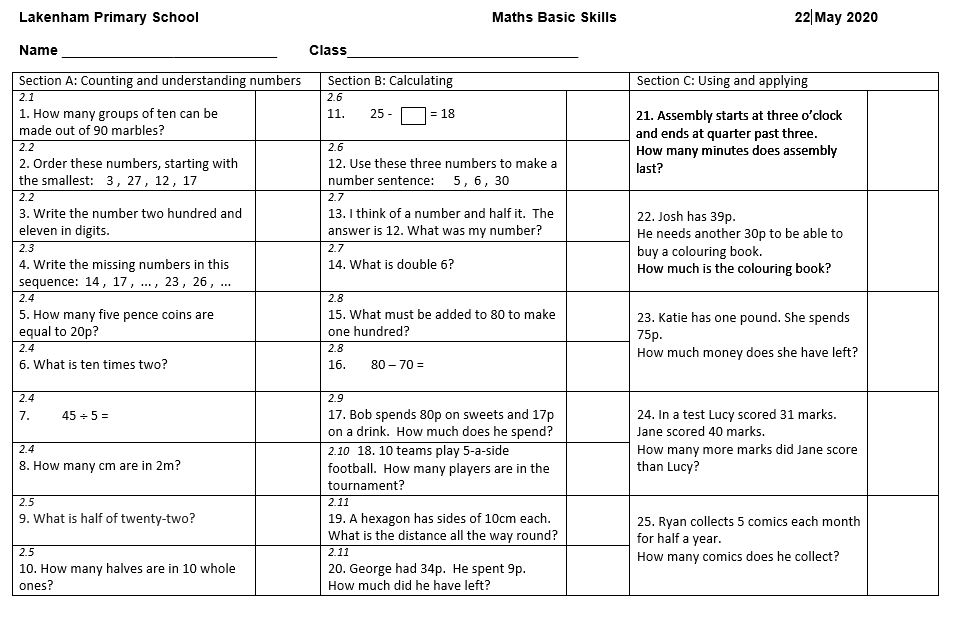
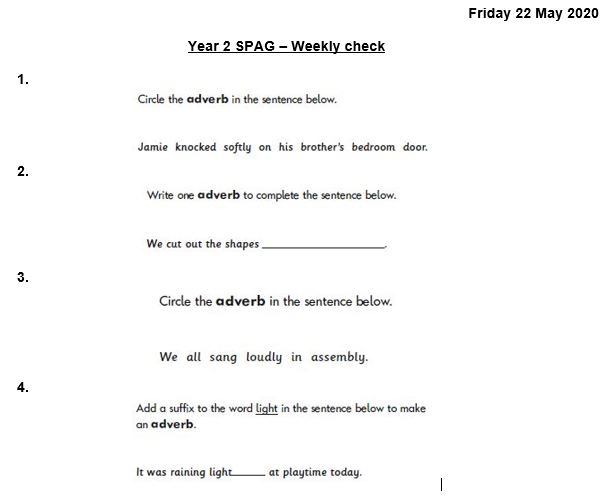
Friday 22nd May 2020
Describing the Witch
Now we have thought about the witch's background, you can now draw and describe her.
What does she look like? Can you use some noun phrases and similes?
What is her personality like?
What does she like?
What does she dislike?
You can present your work in anyway you like - in a spider diagram, a character profile or even a Wanted Poster!
Thursday 21st May 2020
Snow White in New York
E - What does diabolical mean?
R - How is this version different to the original story?
I - Is this a modern version of the story?
C - Has the author changed the feel of the story by changing the setting? If so, how? If not, why not?
Building the Witch's Character
Before we can describe the witch, lets think about her background.
Who is she?
Where did she come from? Where did she grow up?
Why is she living alone in the woods? Does she want to?
Why does she want to imprison the children? Is she doing it because she enjoys it or is she forced to do it?
What does she do all day? Does she like it?
After thinking about all these things (and maybe some other factors), how do you feel about the witch now?
Tell your adult.
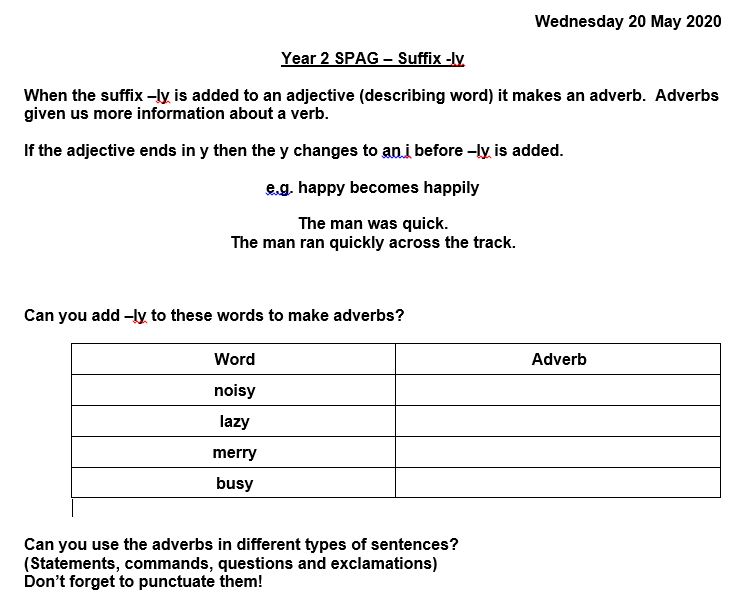
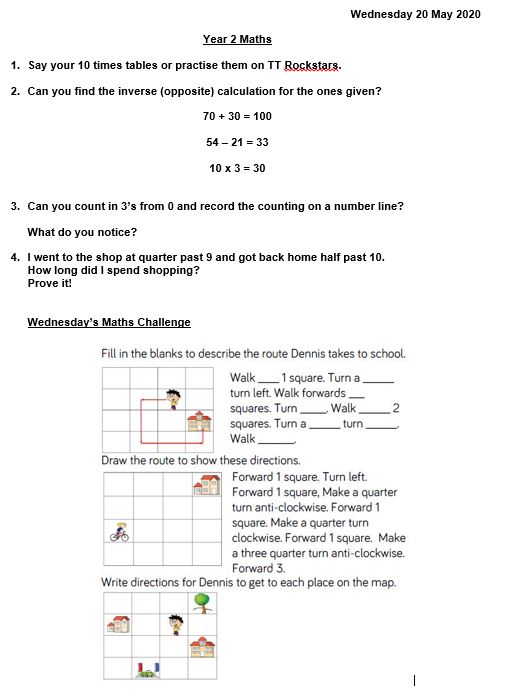
Wednesday 20th May 2020
Character Inference
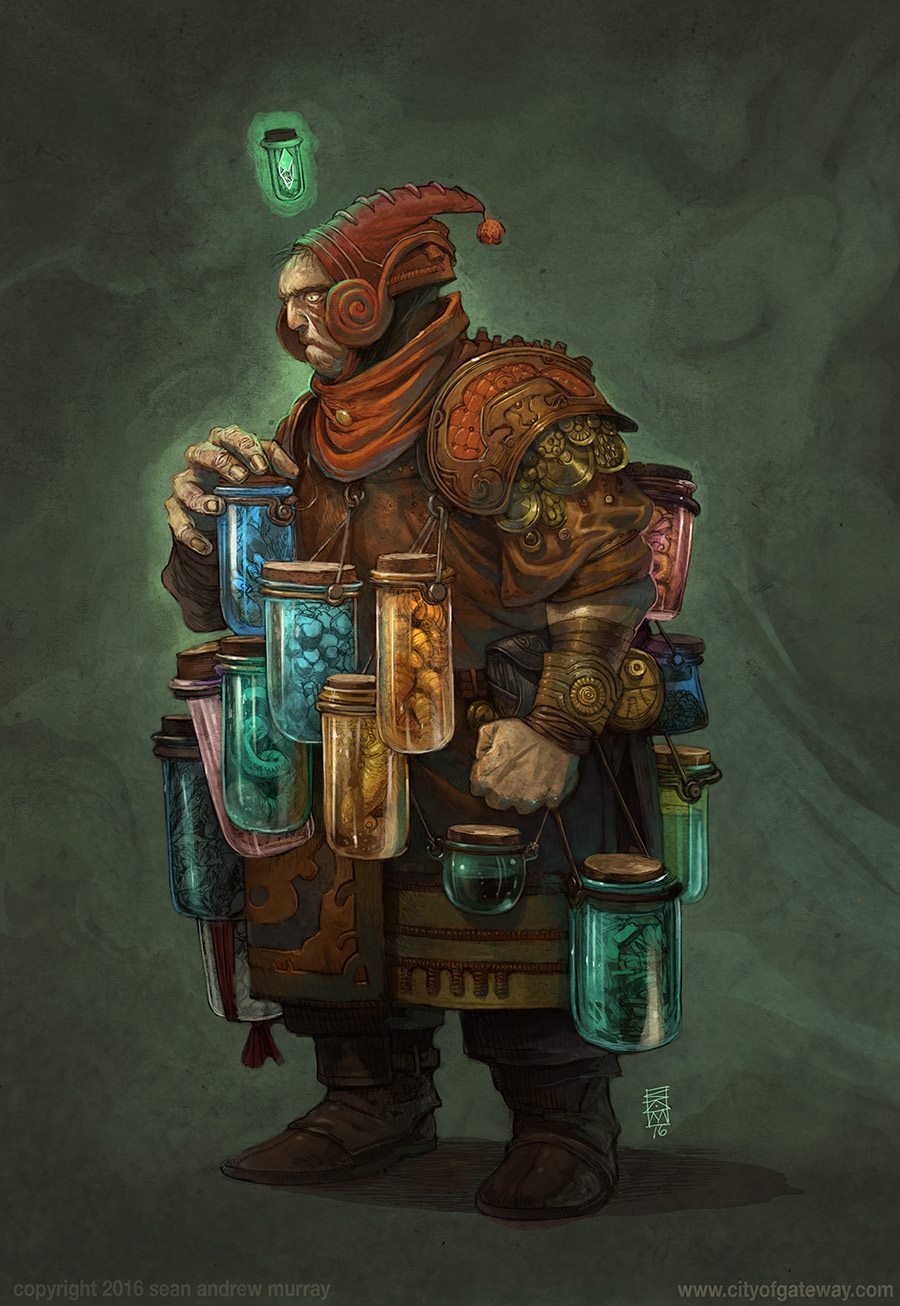
Who do you think this is?
Why is he carrying all of those jars? What’s inside them? Why are they attached to his clothing? Couldn’t he just carry them in a bag?
Why is he wearing this clothing?
Is he going to open the blue jar? Why?
Why is his other fist clenched?
What does his body language tell you about his thoughts and feelings?
Choose 3 words to describe this character. Justify your choices and explain why your words are better than anyone else’s! [You could vote on the best words and debate why they are the best; repeat for the ‘worst’/least appropriate.]
The Princess and the Pea
E - What other words could be used to describe "not quite right"?
R - What did they do to test if she was a real princess?
I - Why do you think this might work?
C - Is this story different to the one you know already?
Tuesday 19th May 2020
Gingerbread House!
Can you imagine if you found a Gingerbread house in the woods?
What would you think?!
Can you draw the house or can you make it out of modelling such as Lego? Can you make another house made of food? What will you use? Cake? Gingerbread? Sweets? Chocolate? Bread?
Can you describe it using as many adjectives as possible?
Remember to use your five senses and describe what you can see, smell, hear, touch and taste.
Look at the BBC Bitesize Activity and see if you can use some noun phrases.
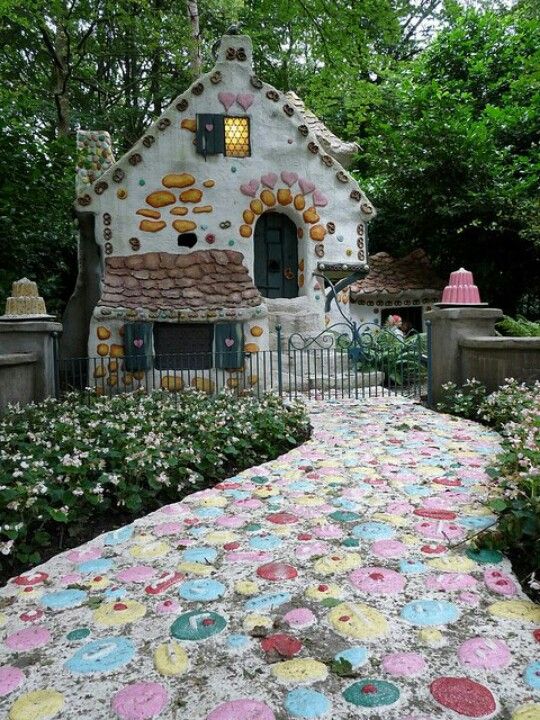
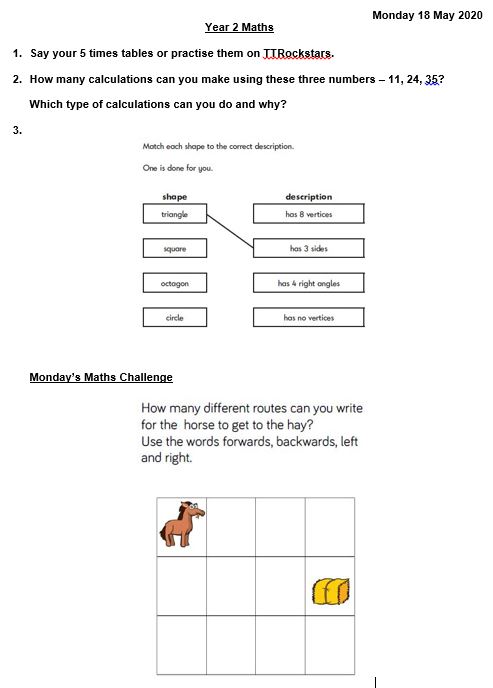
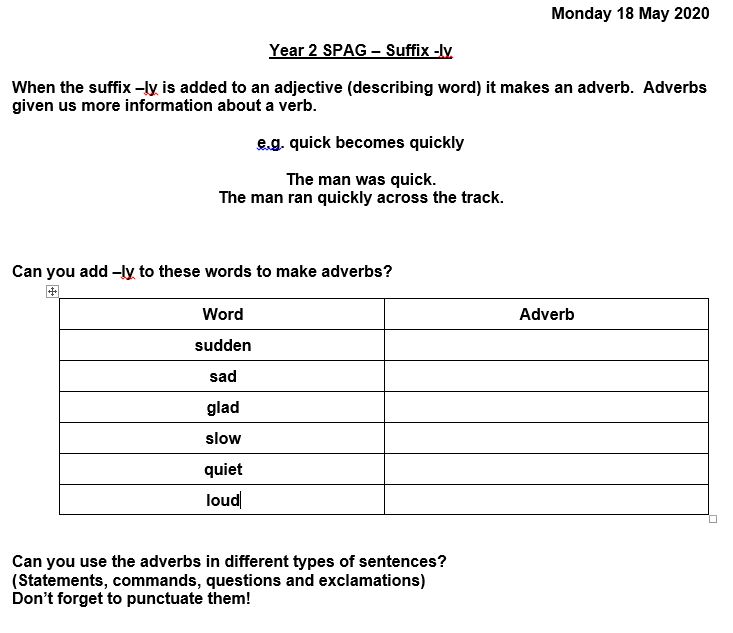
Hansel and Gretel
What do you think about this story?
Is it sad or happy?
What do you think about what the children did to escape?
Whose fault do you think what happened to the children was?
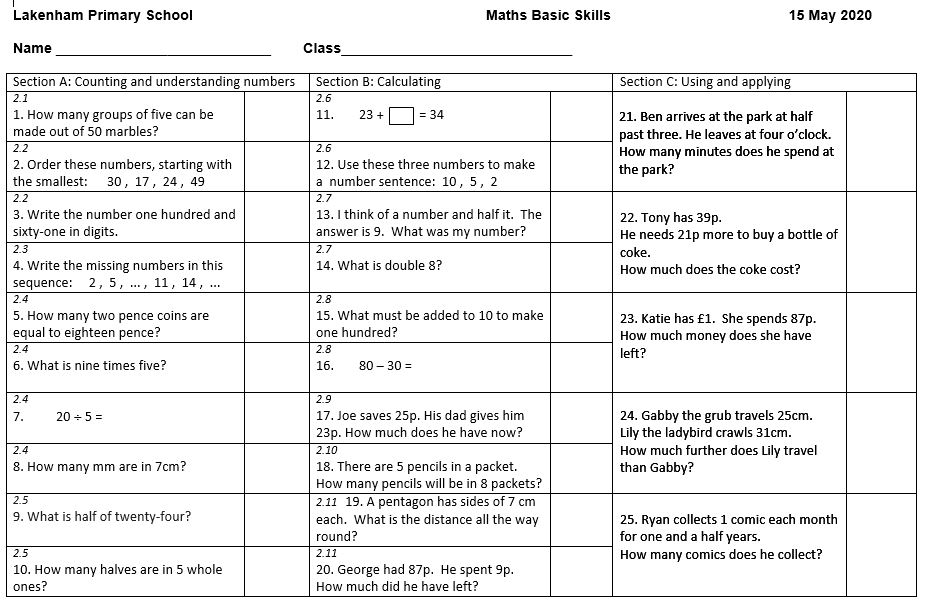
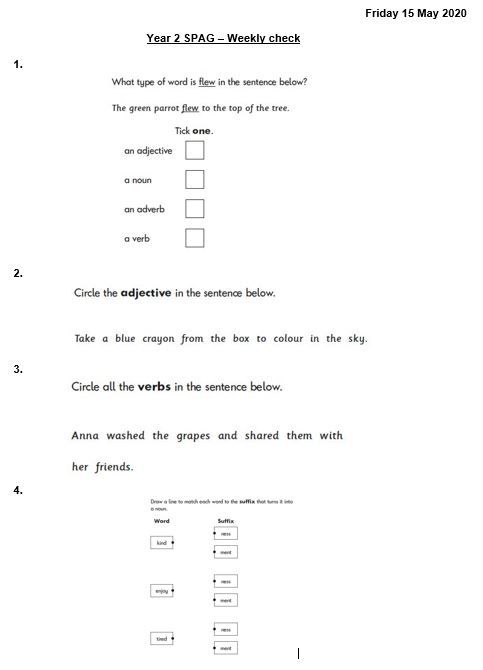
F


